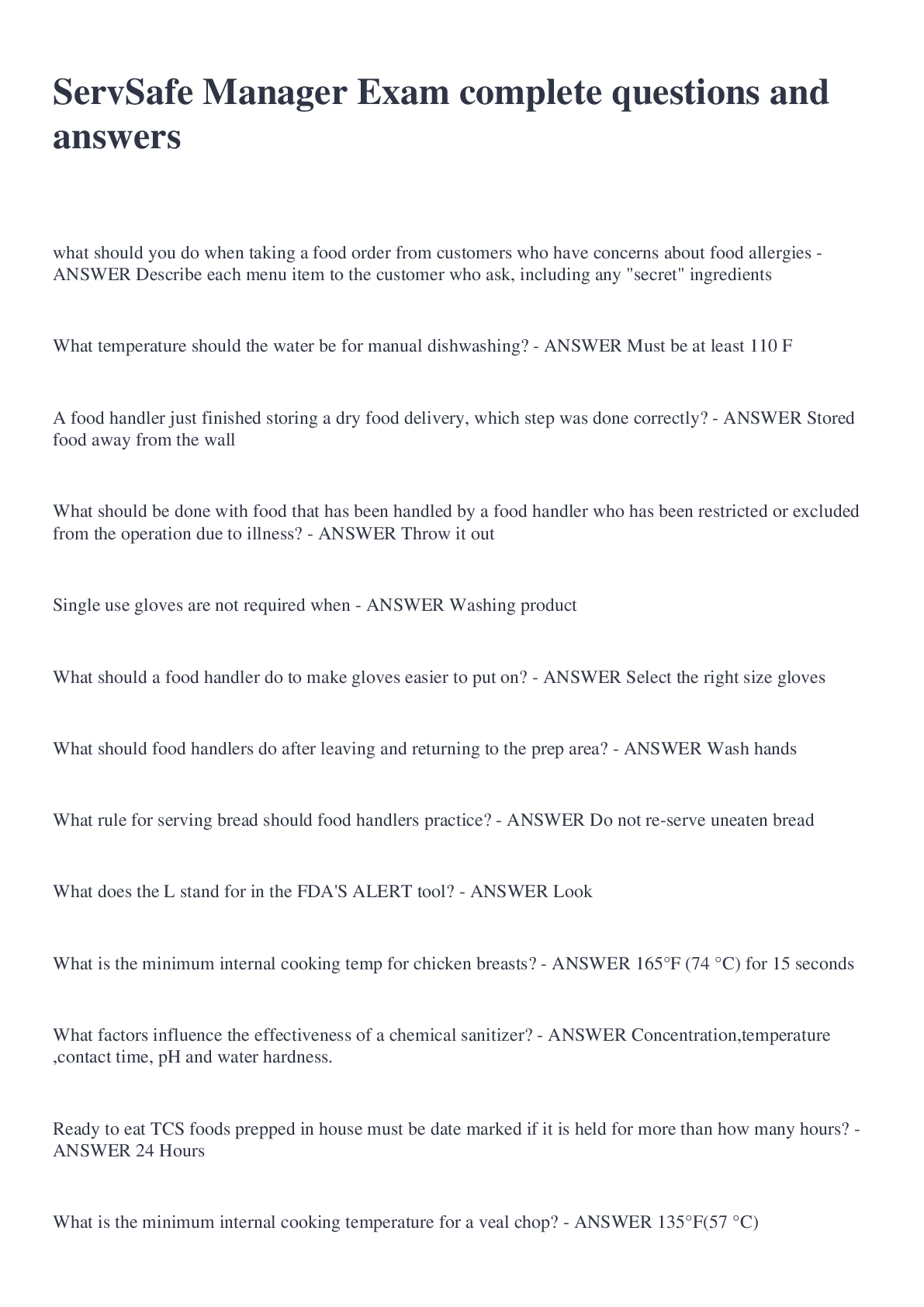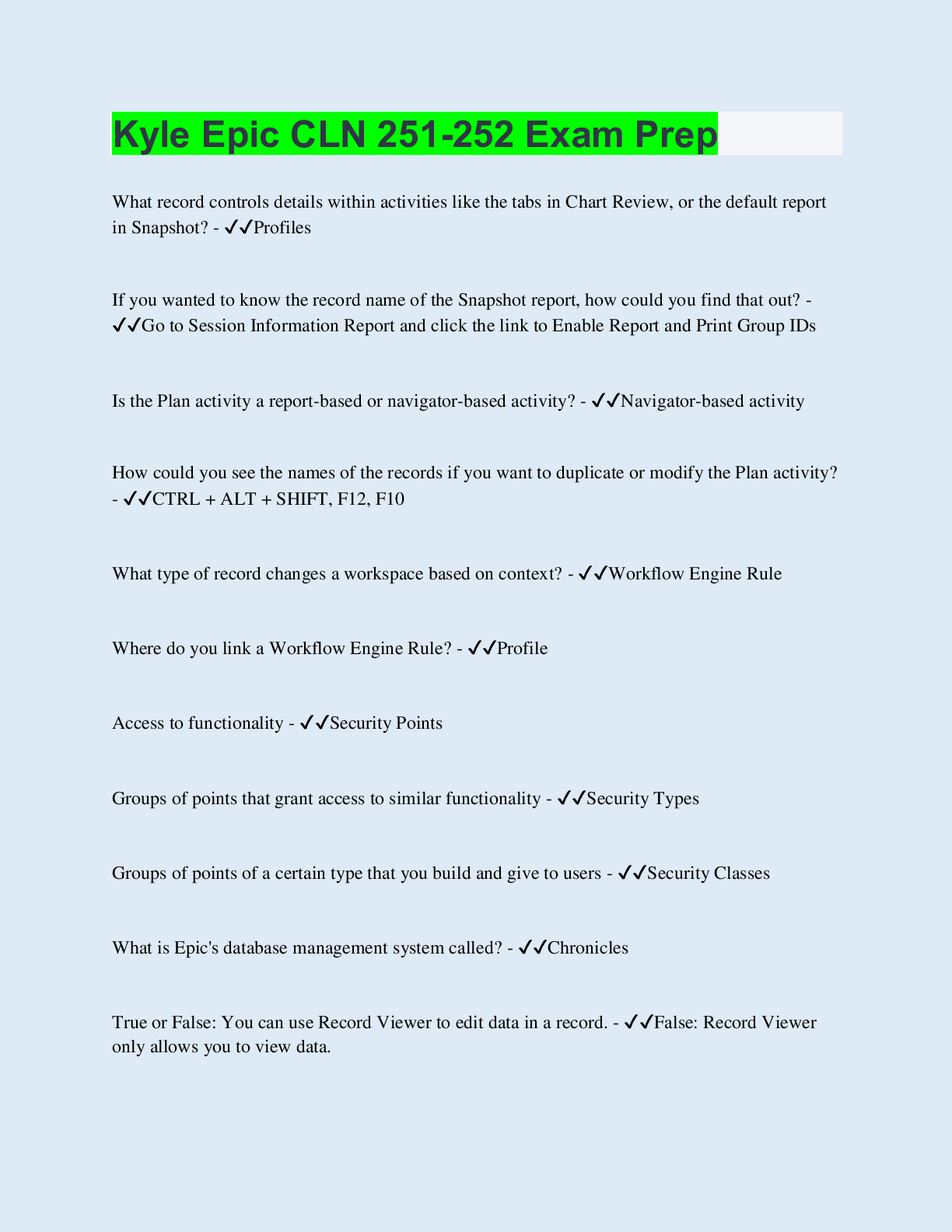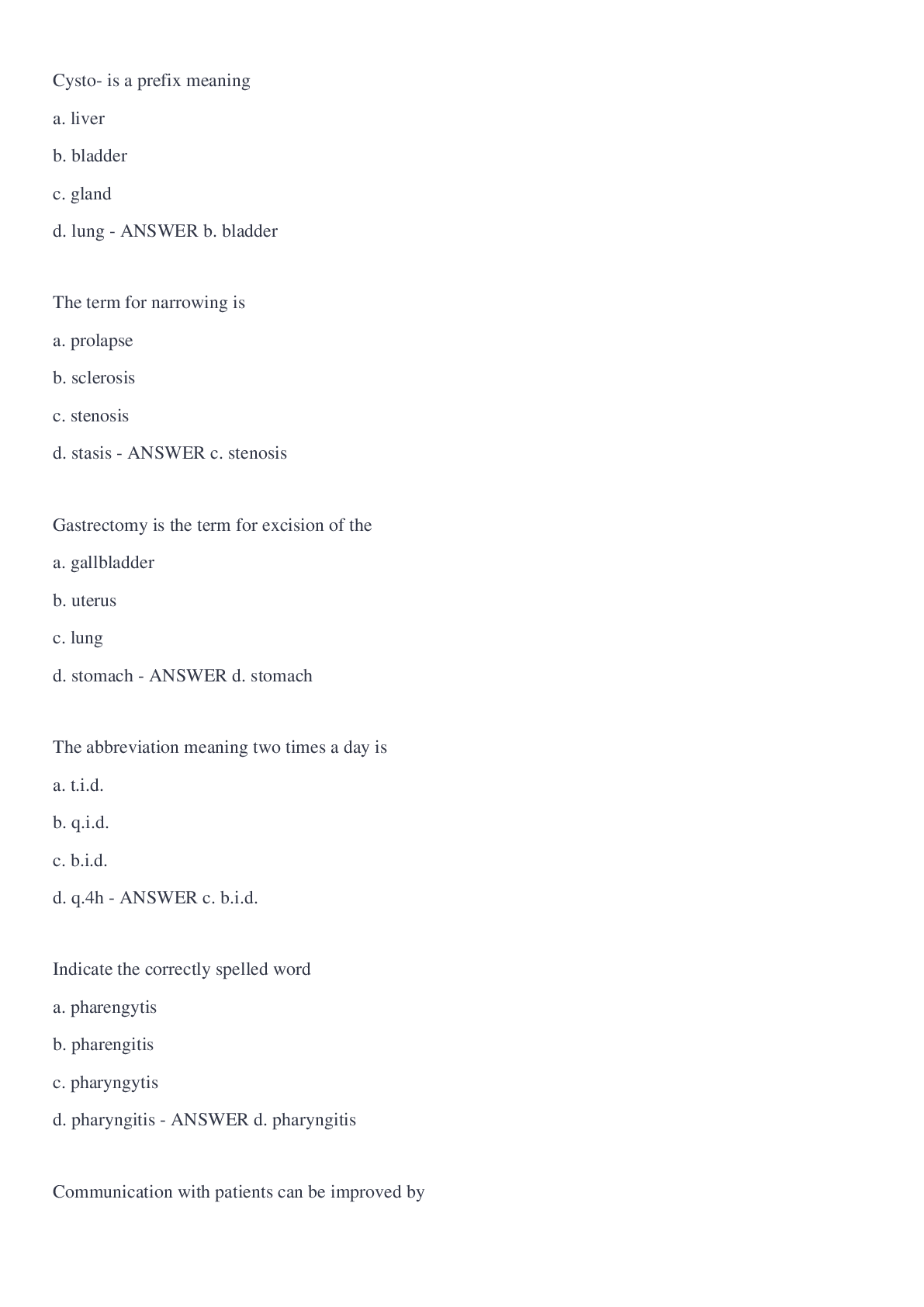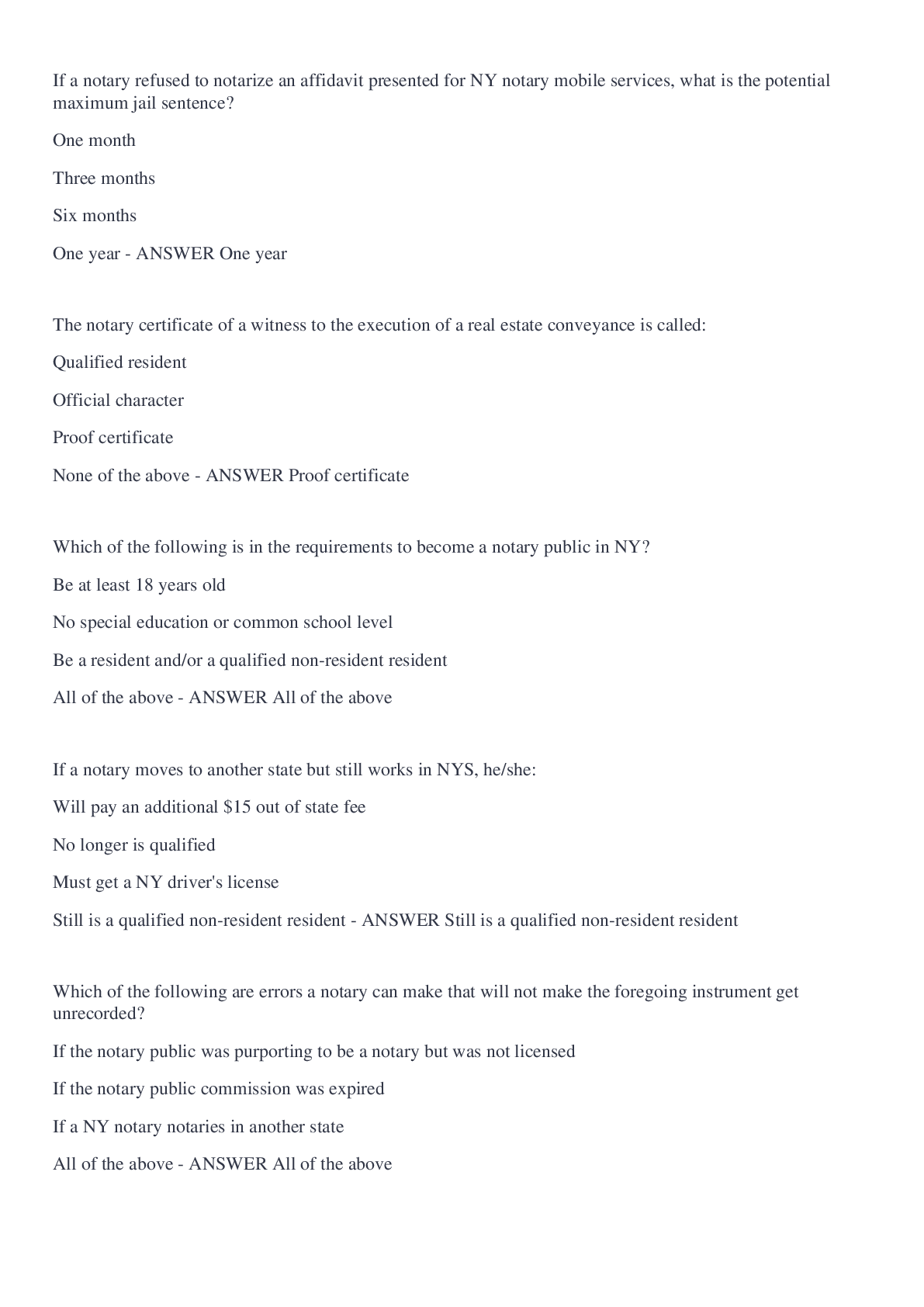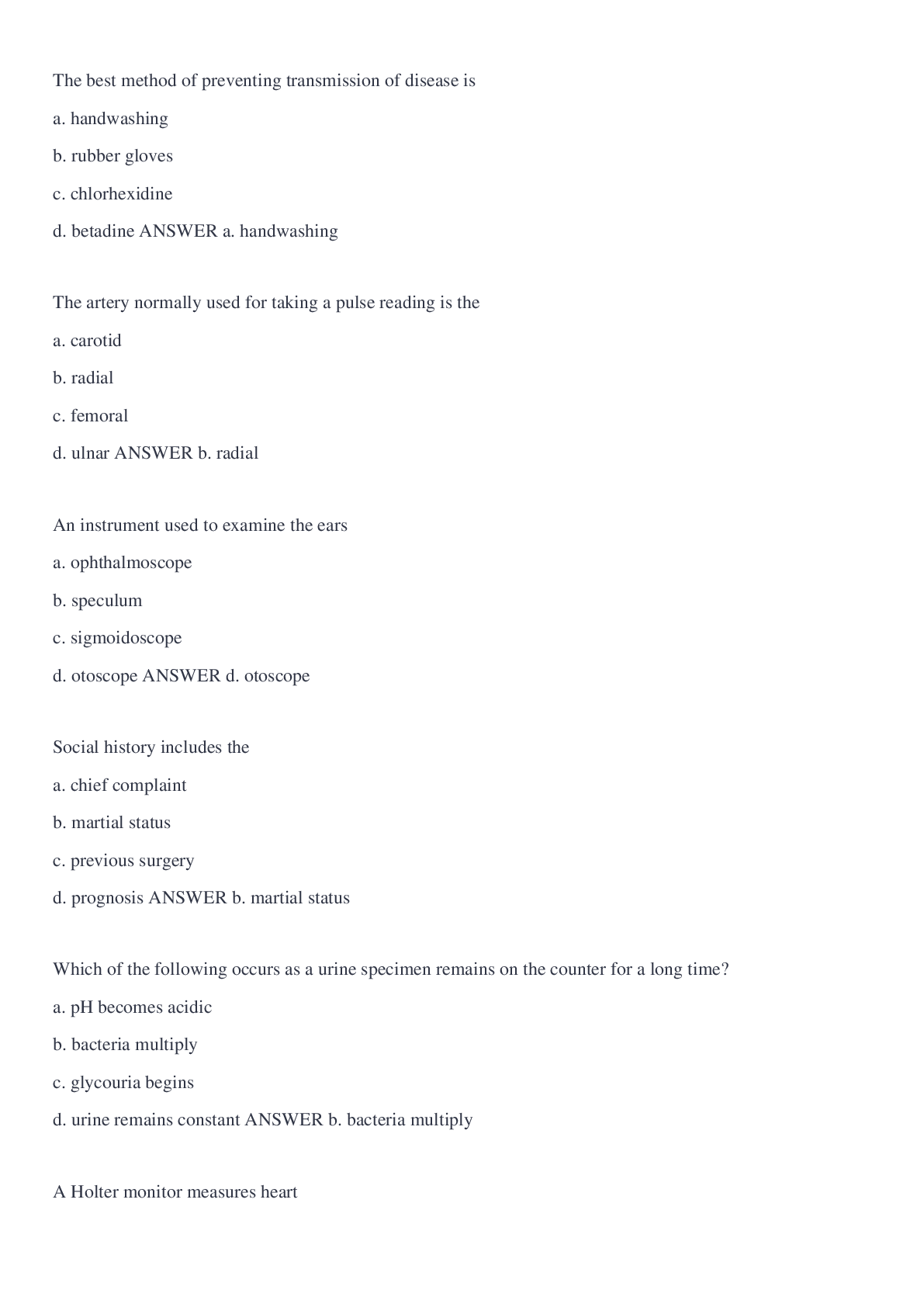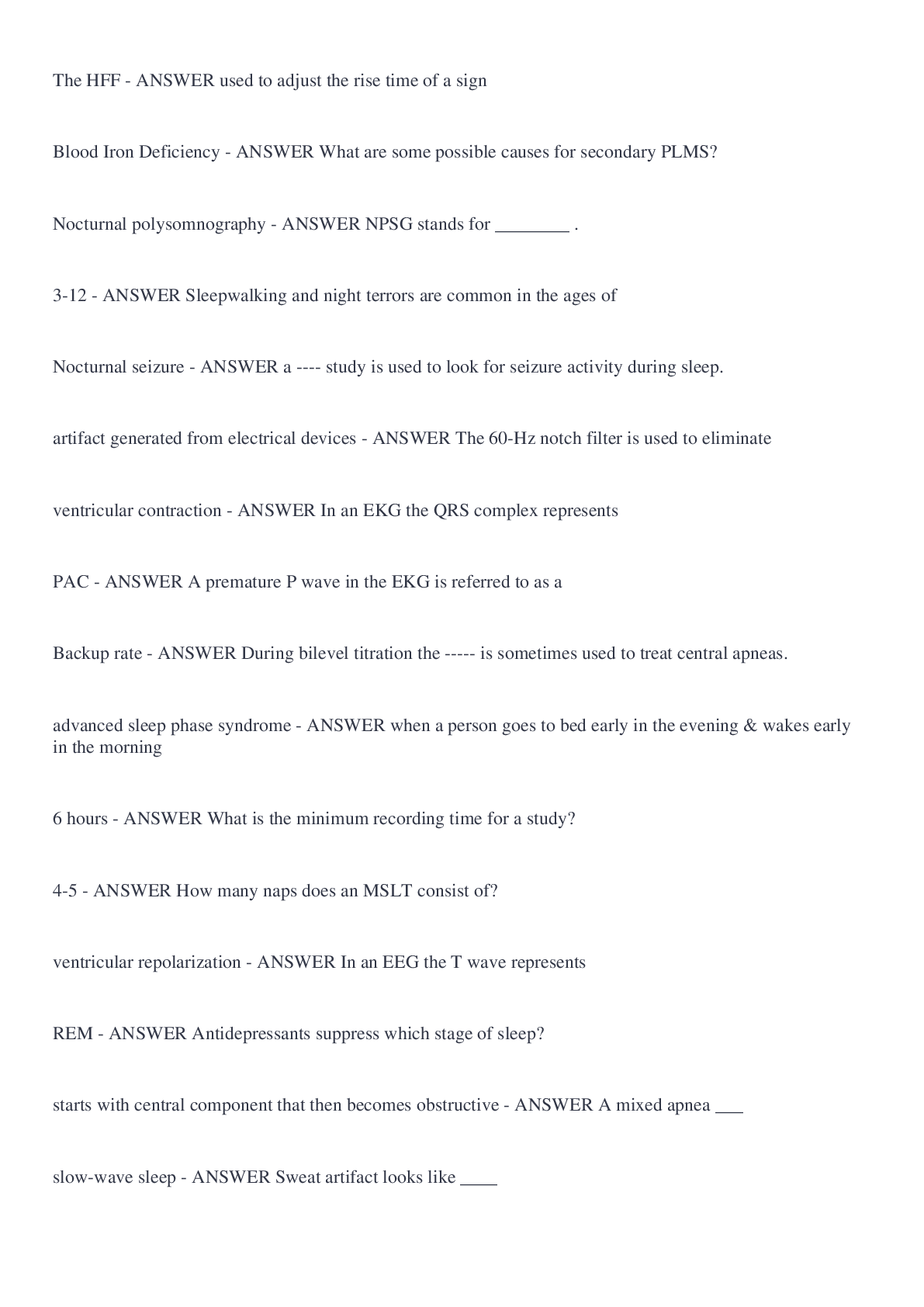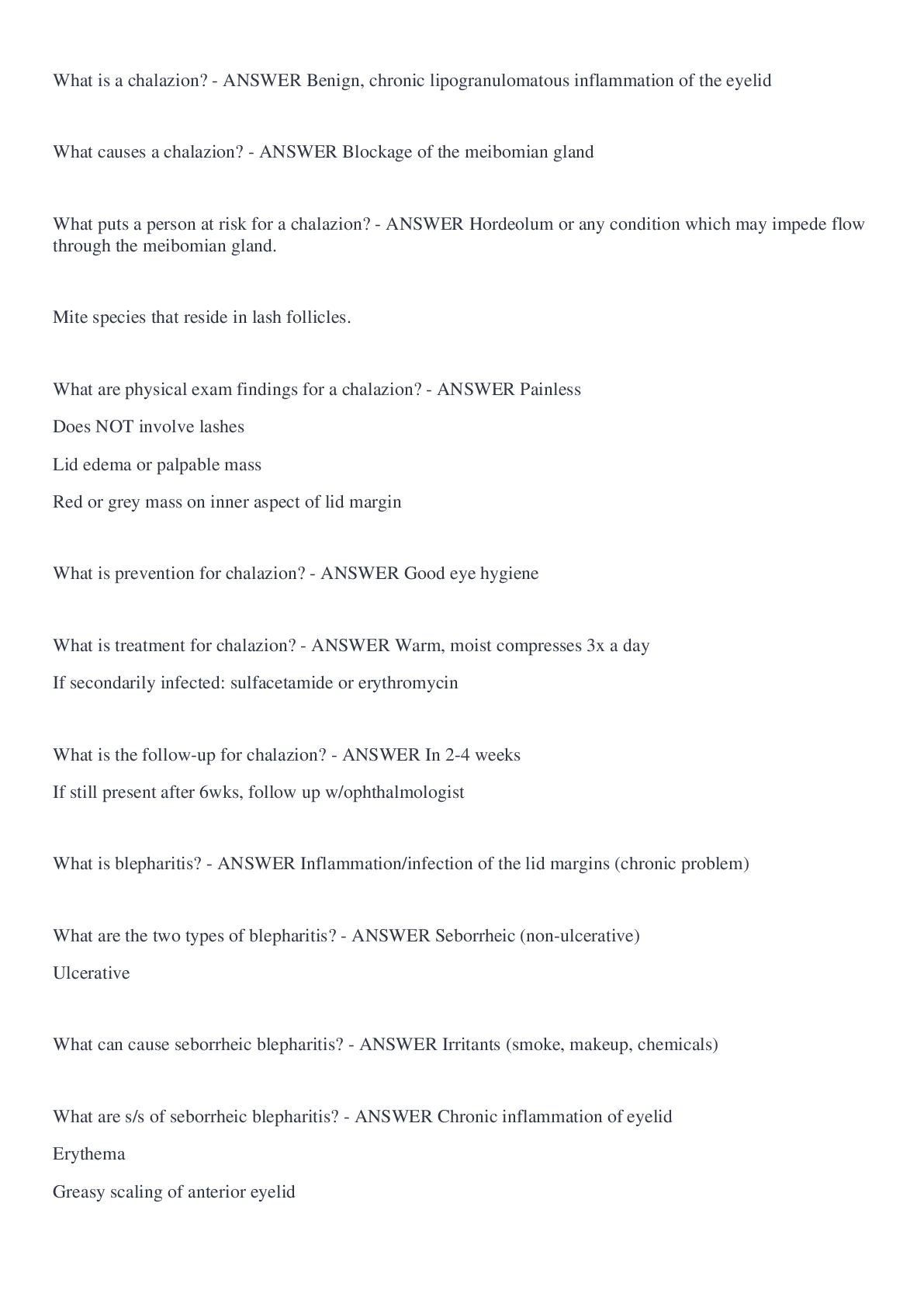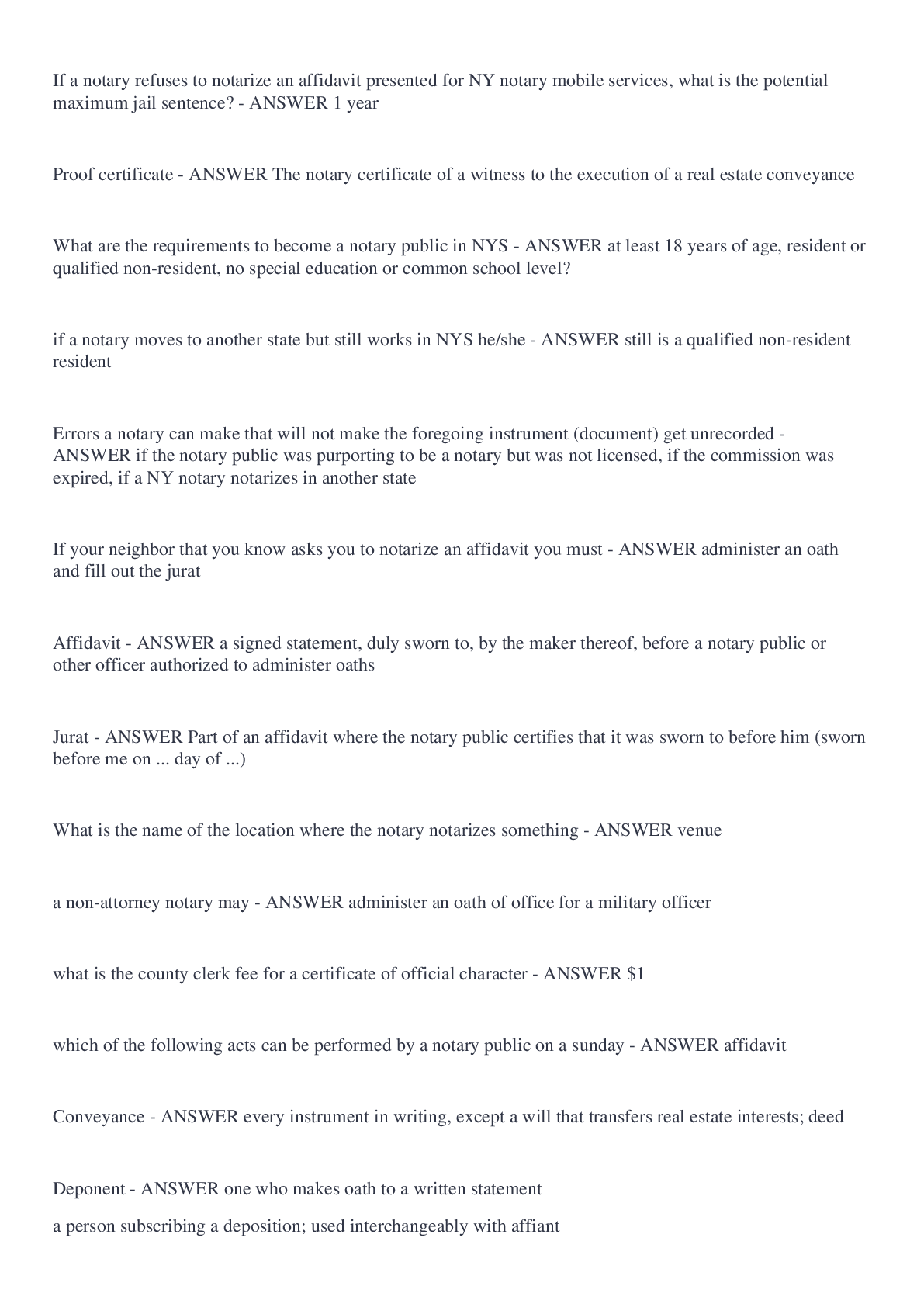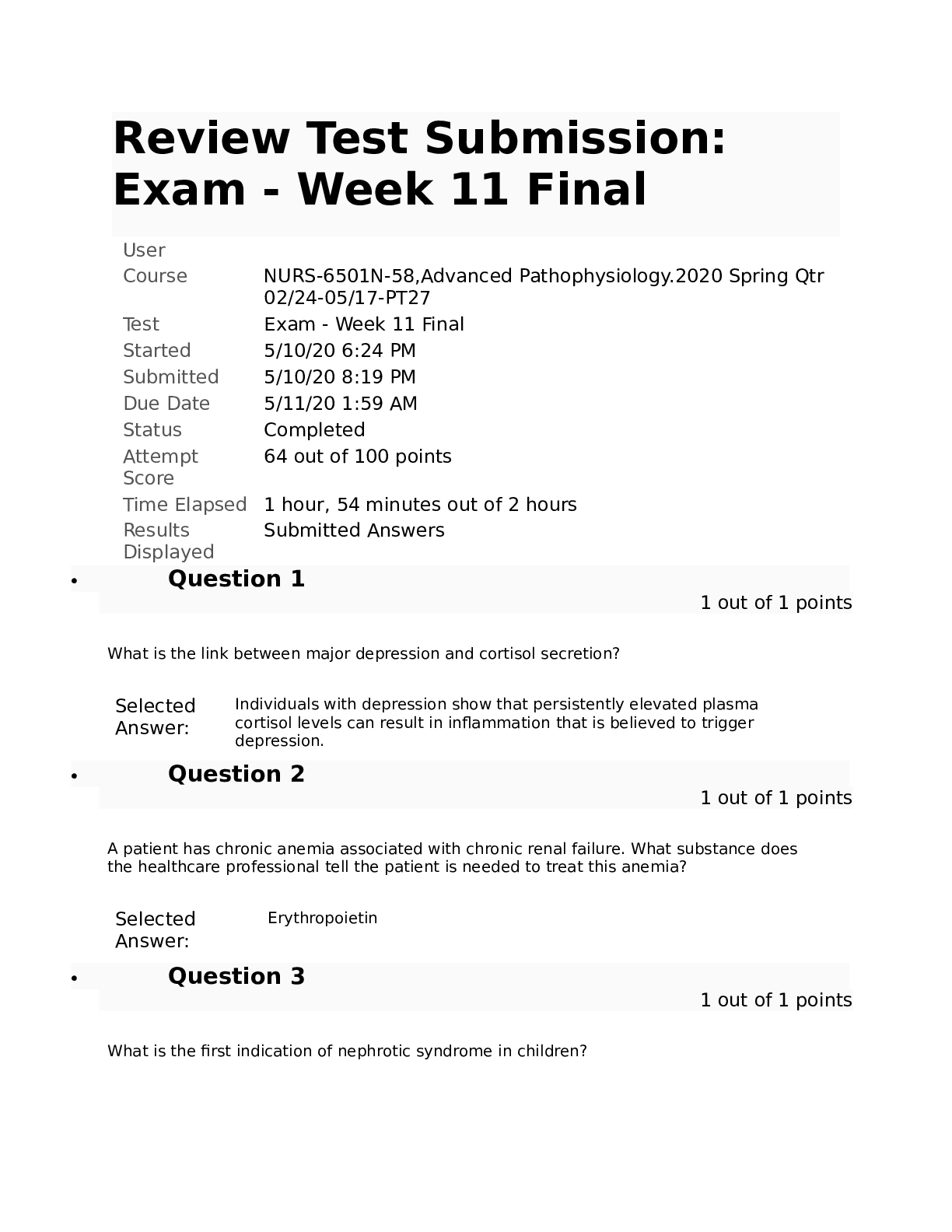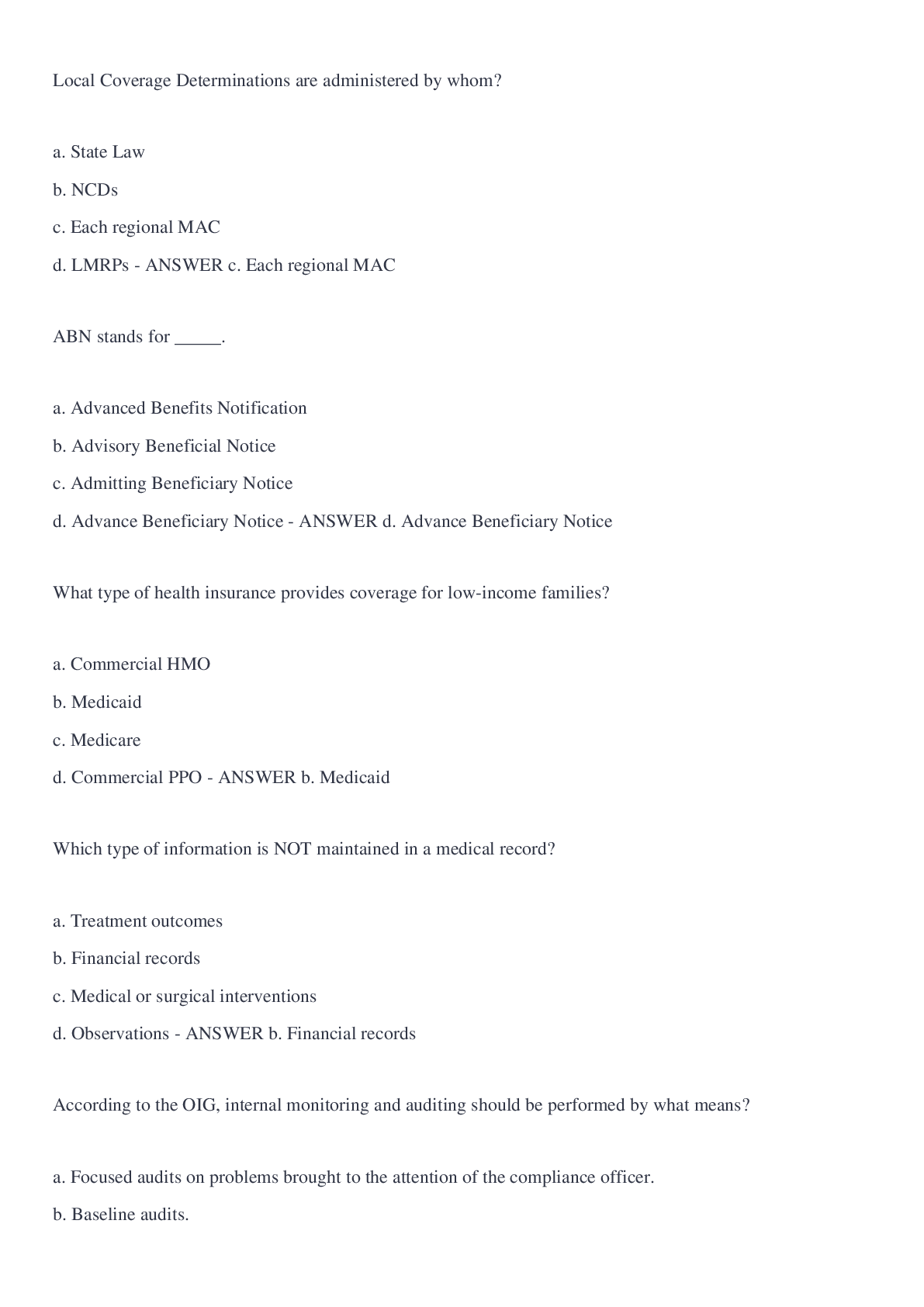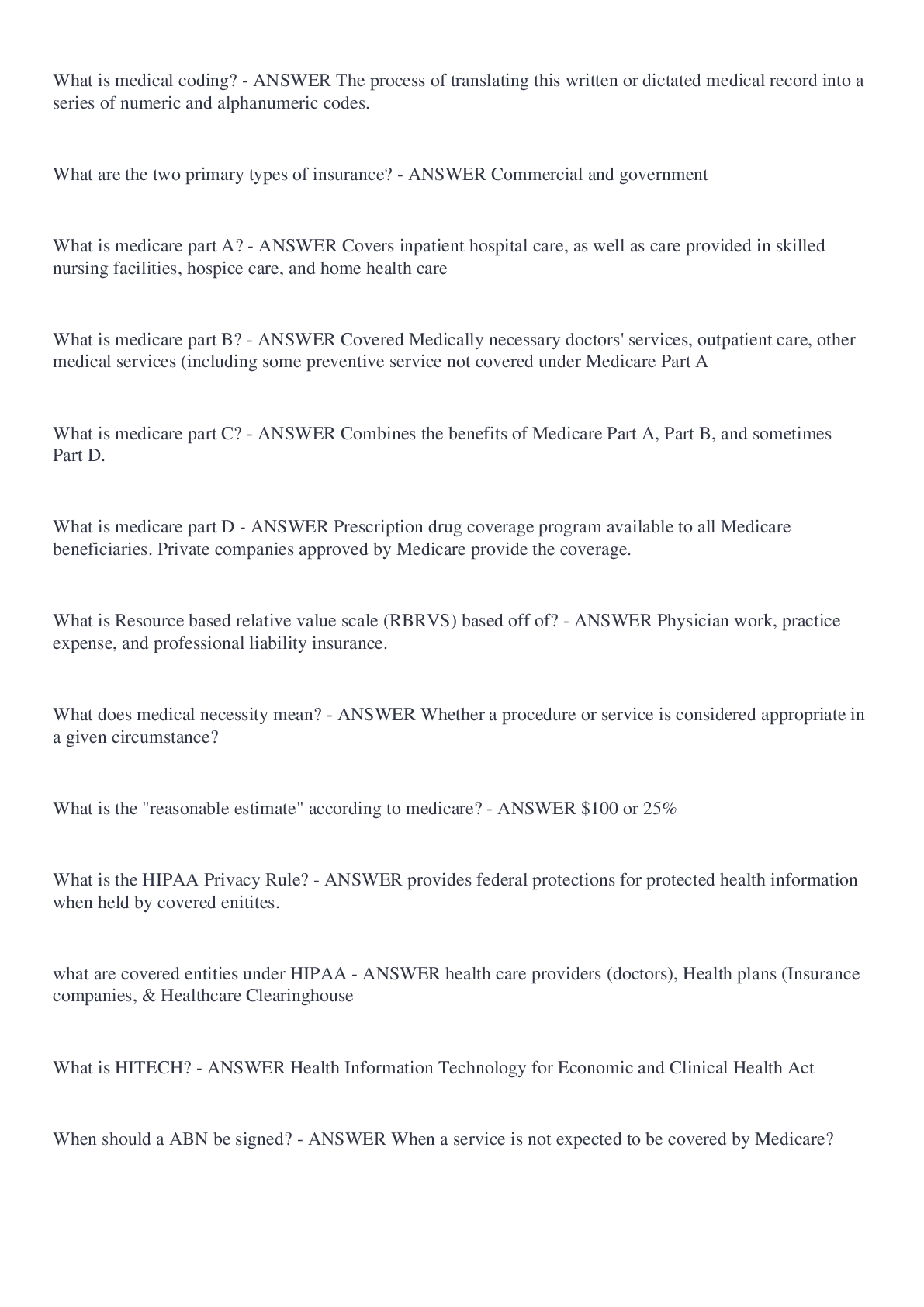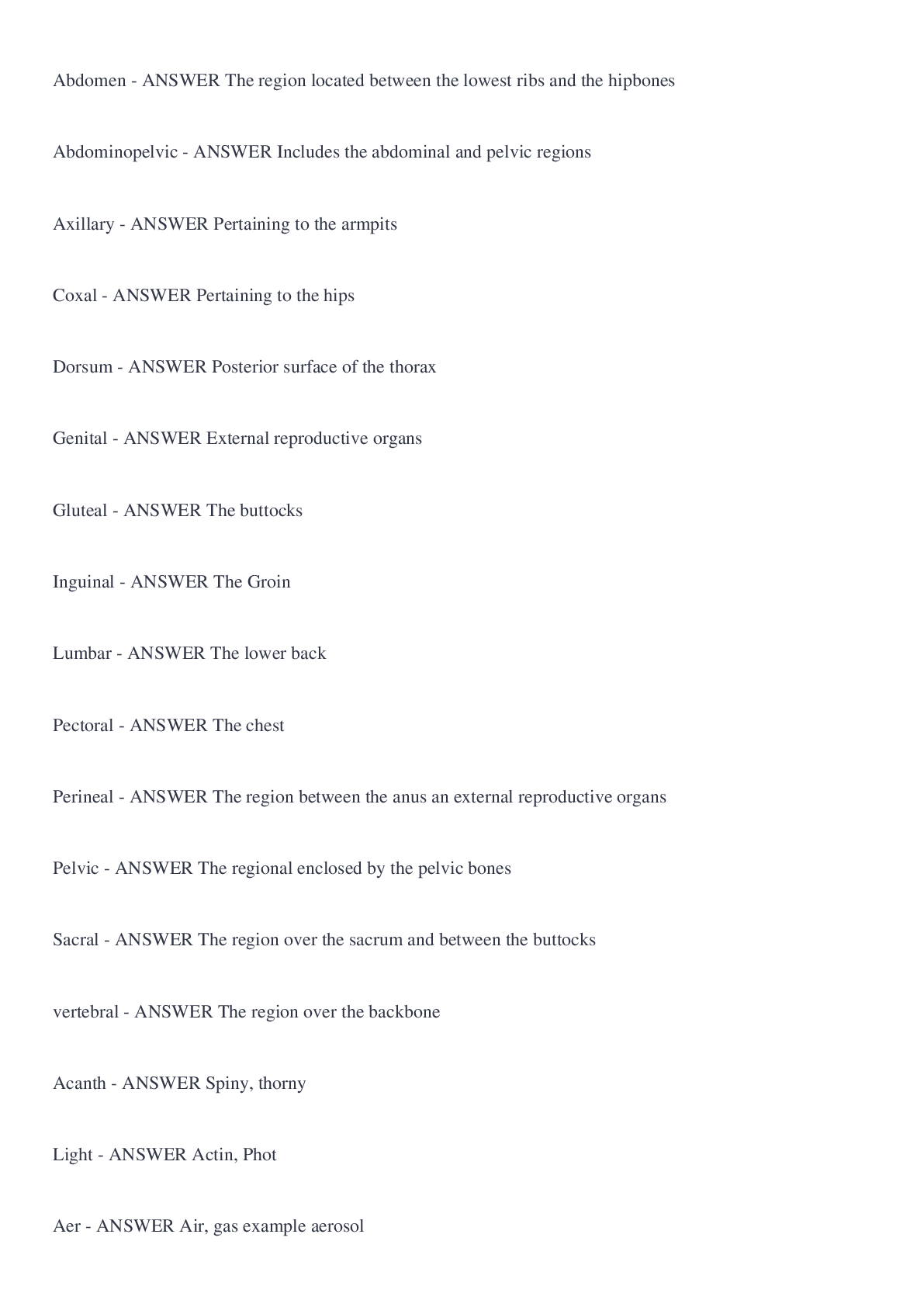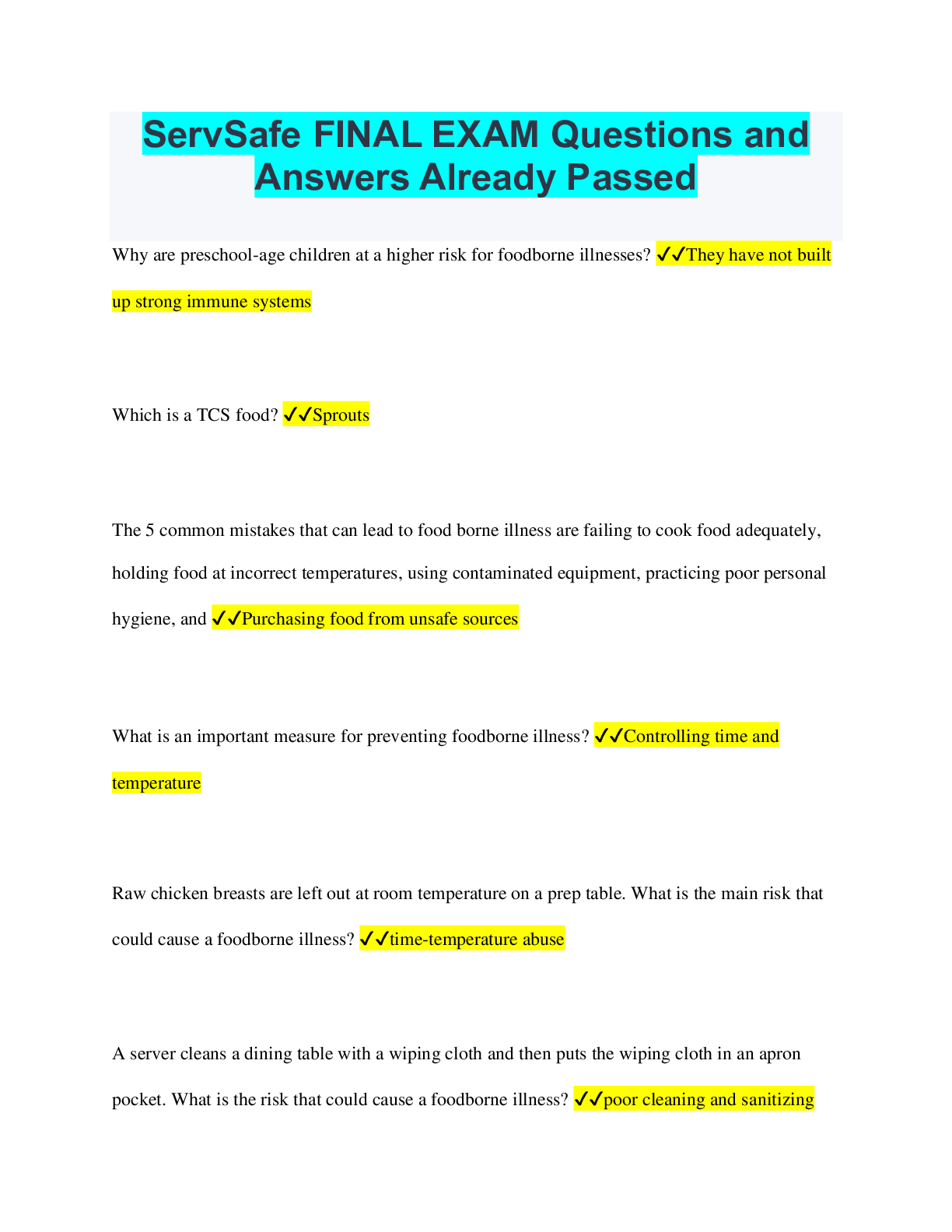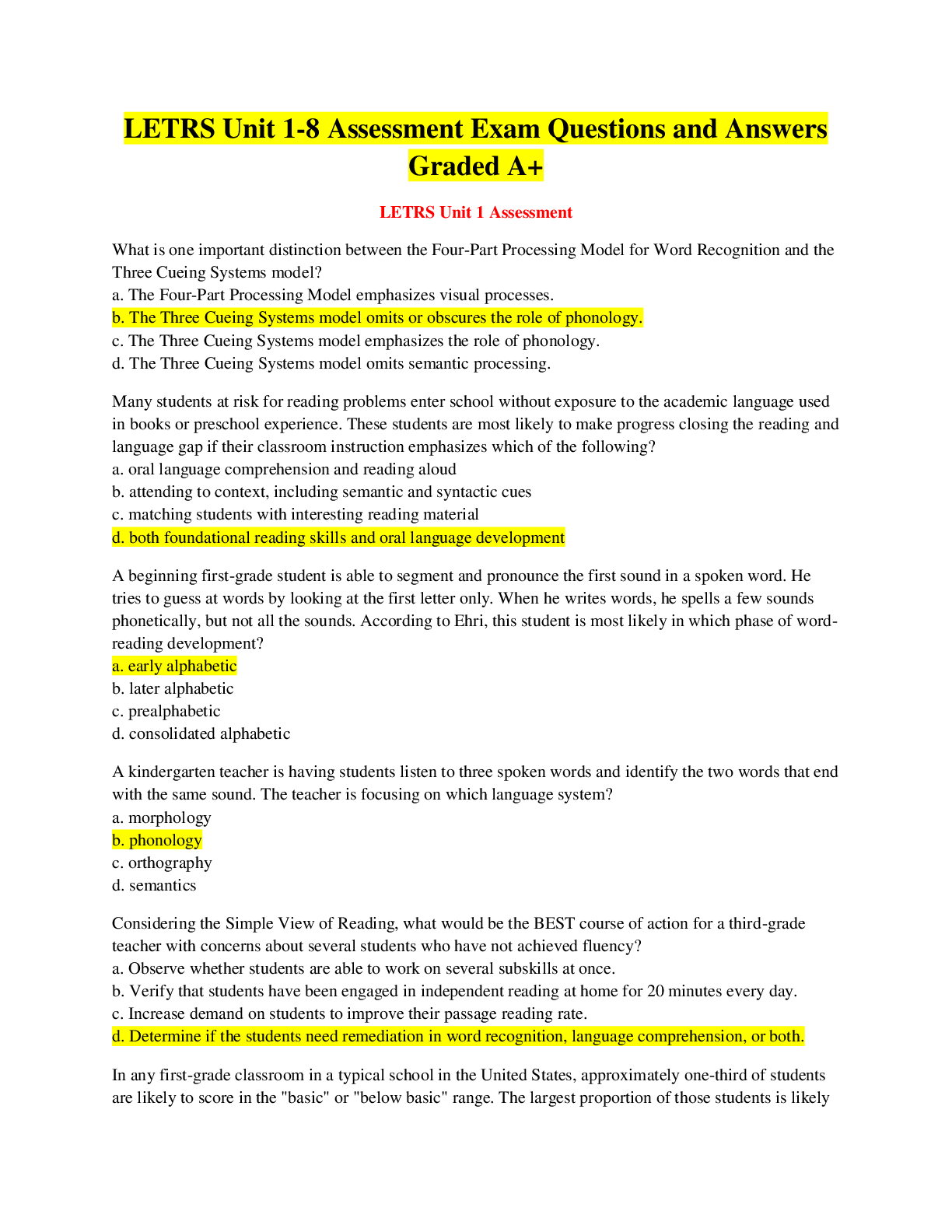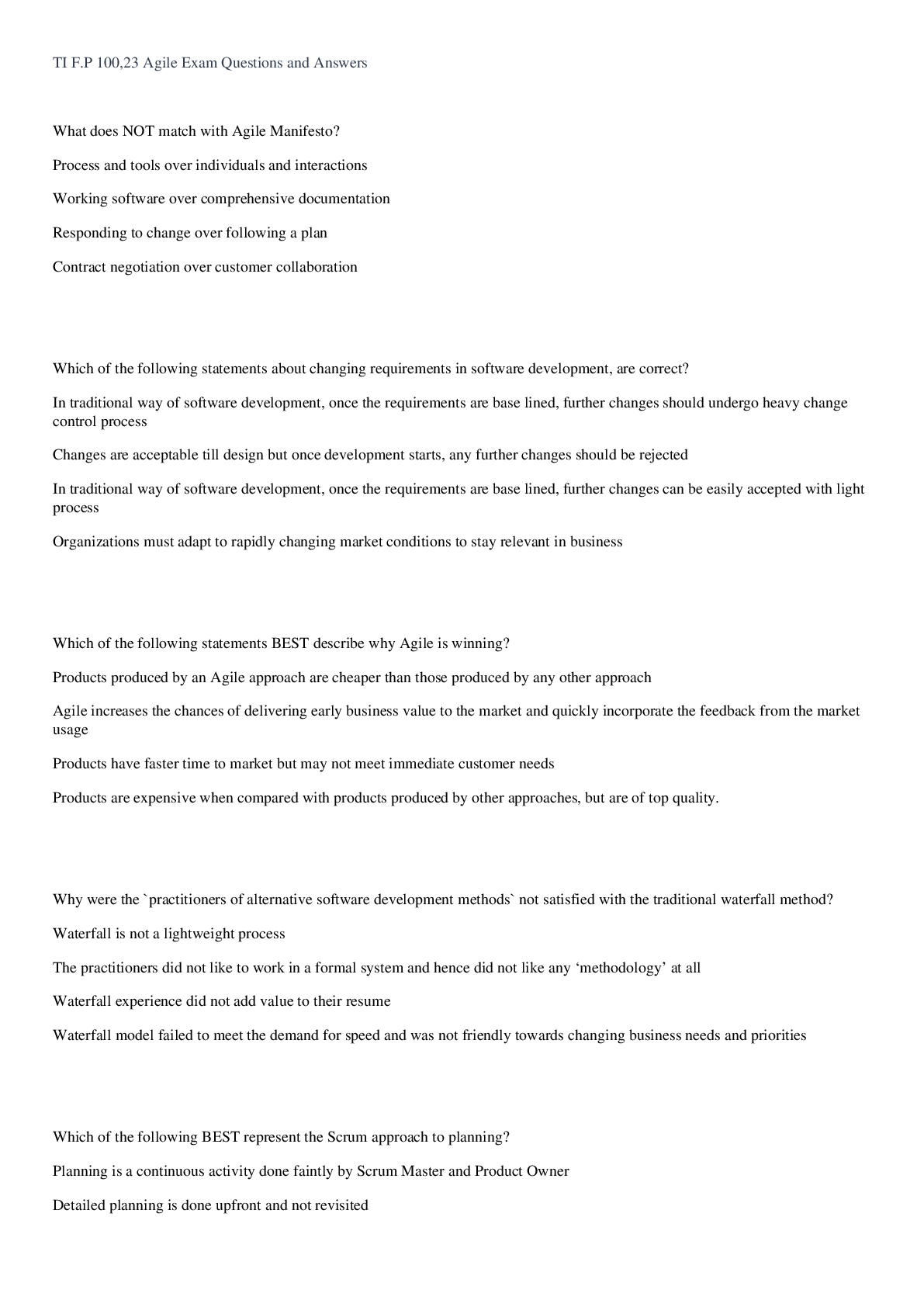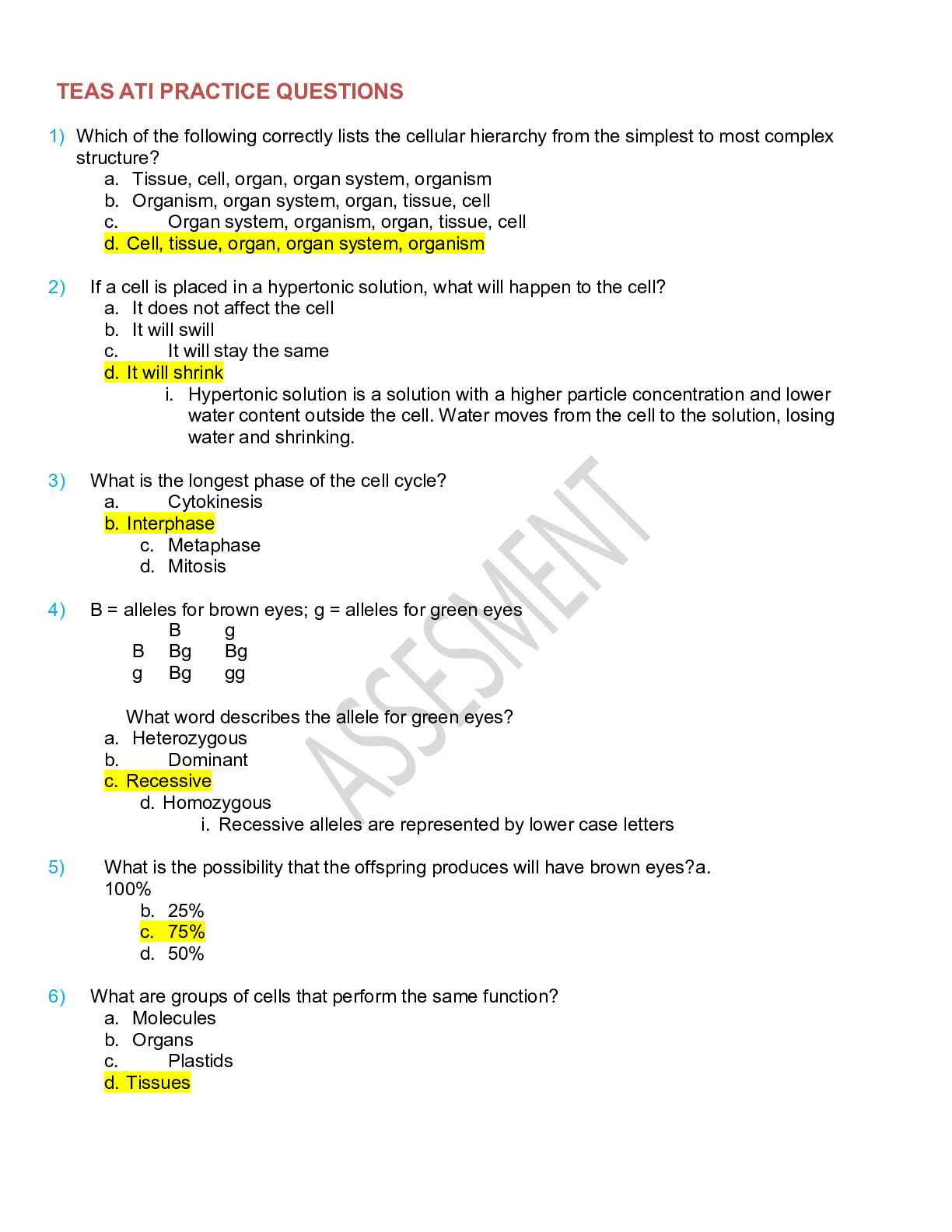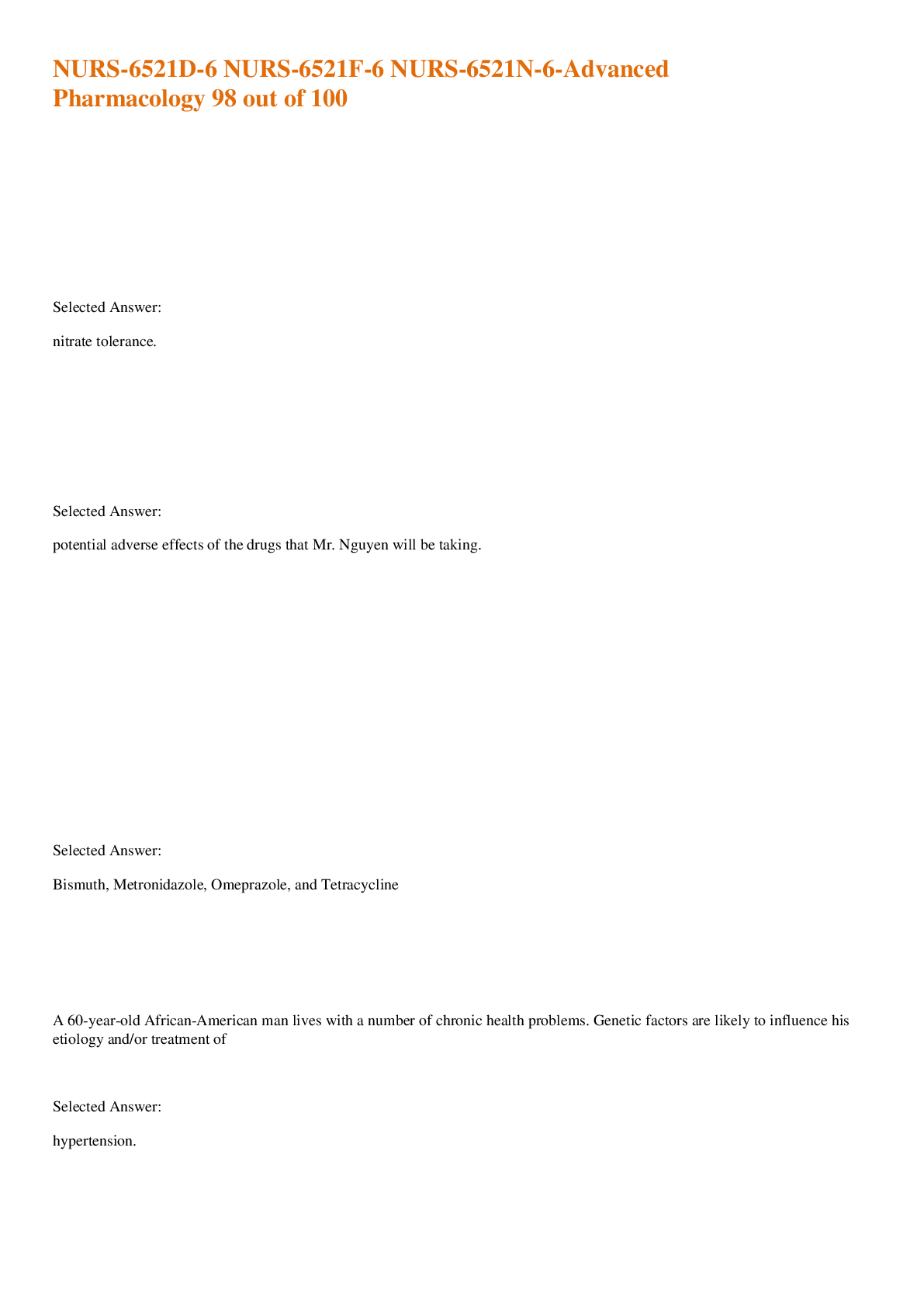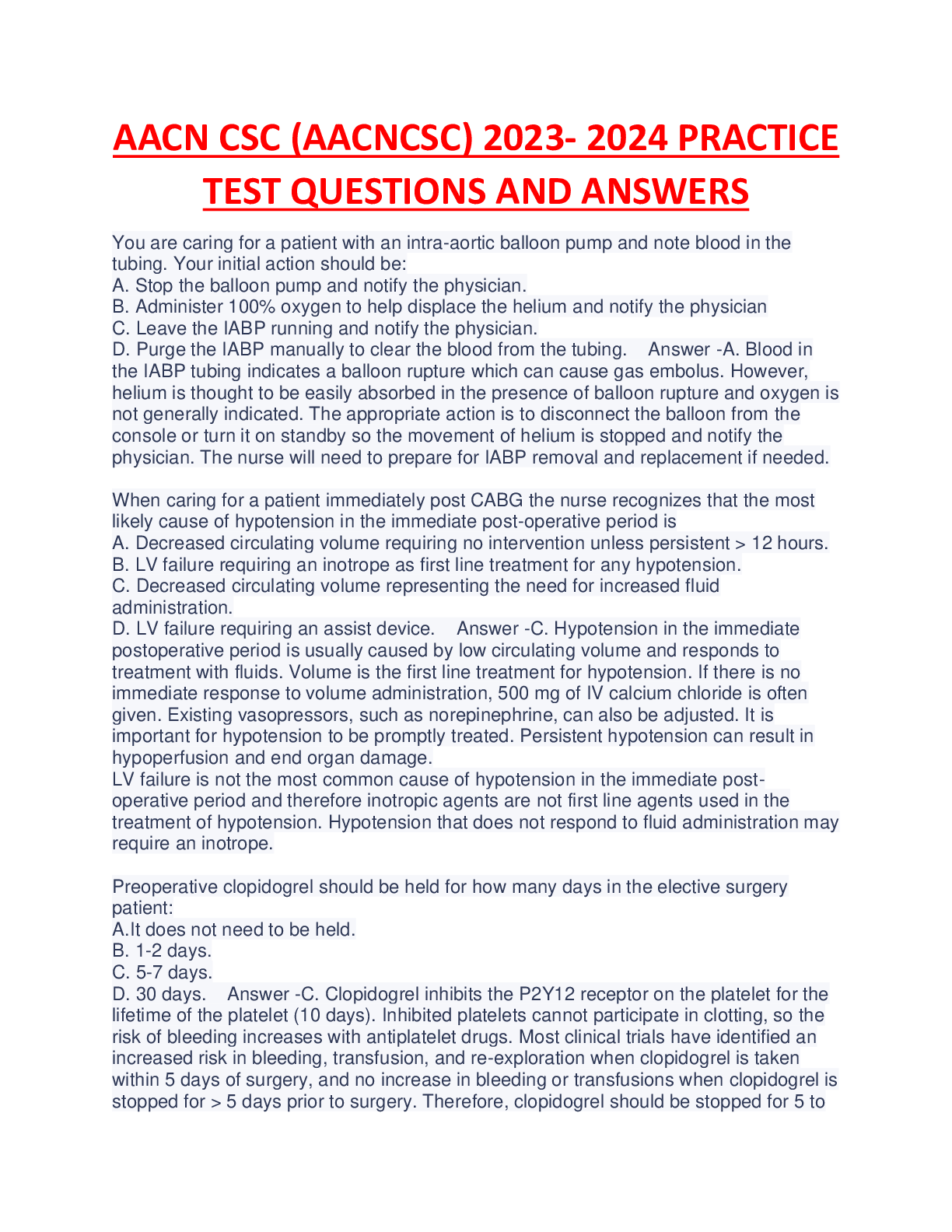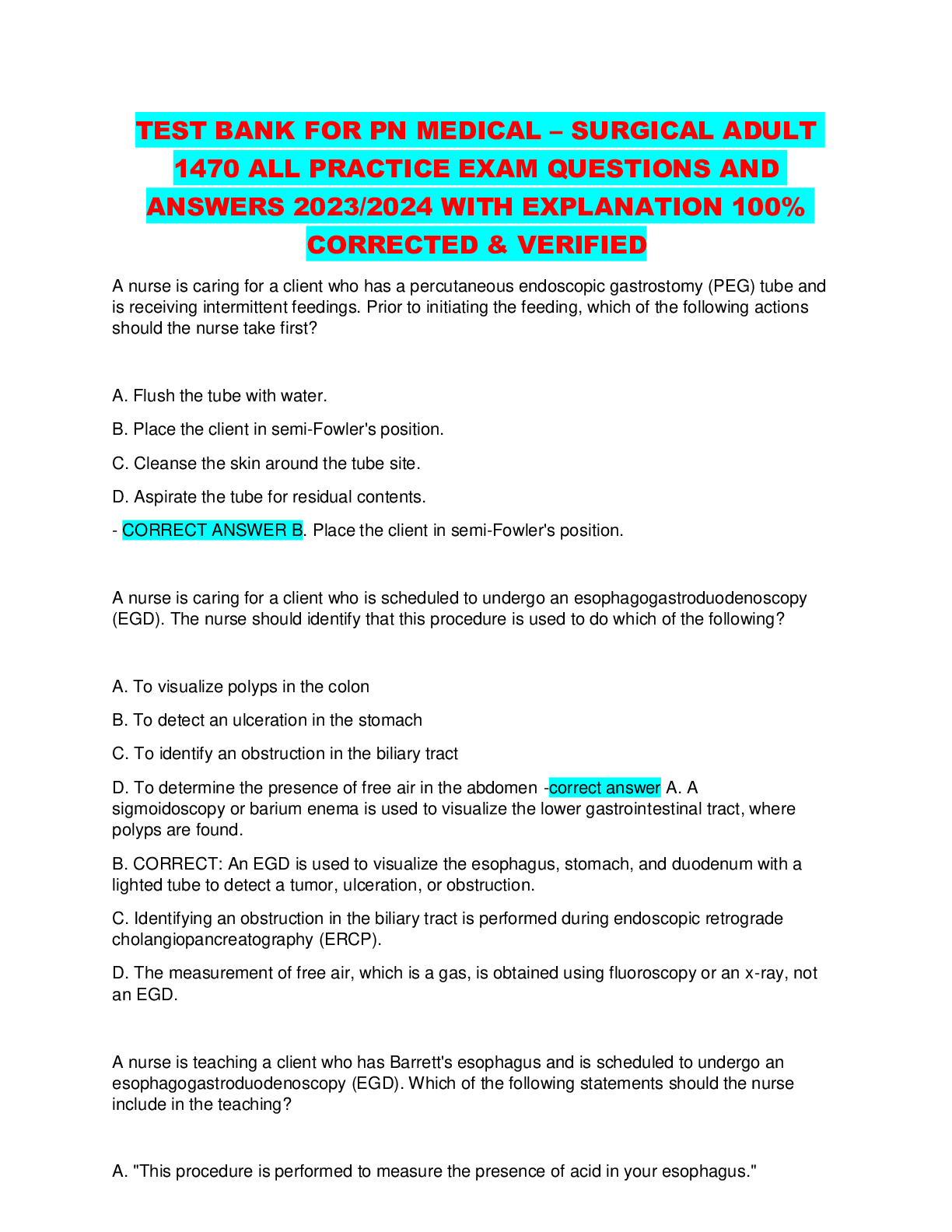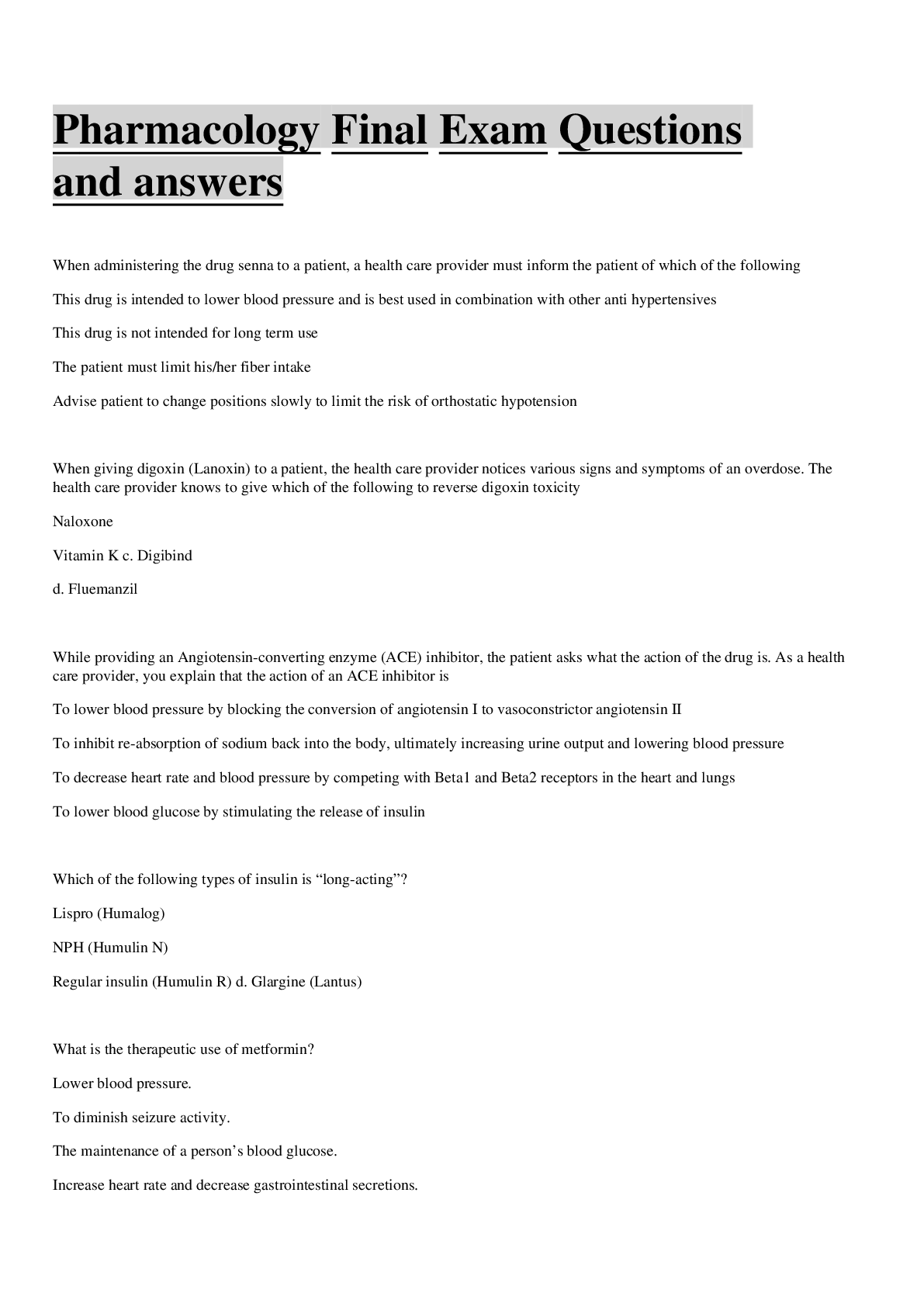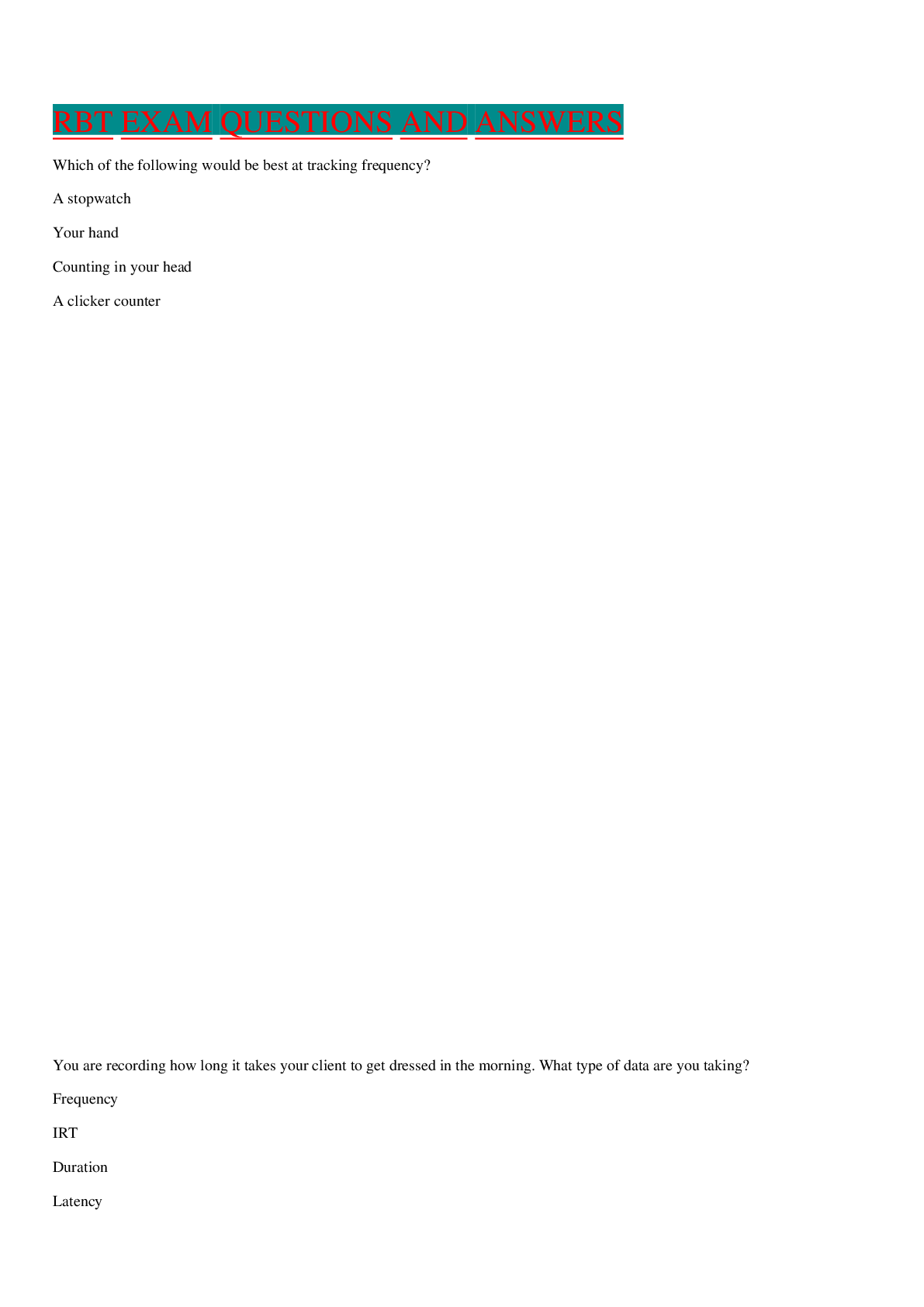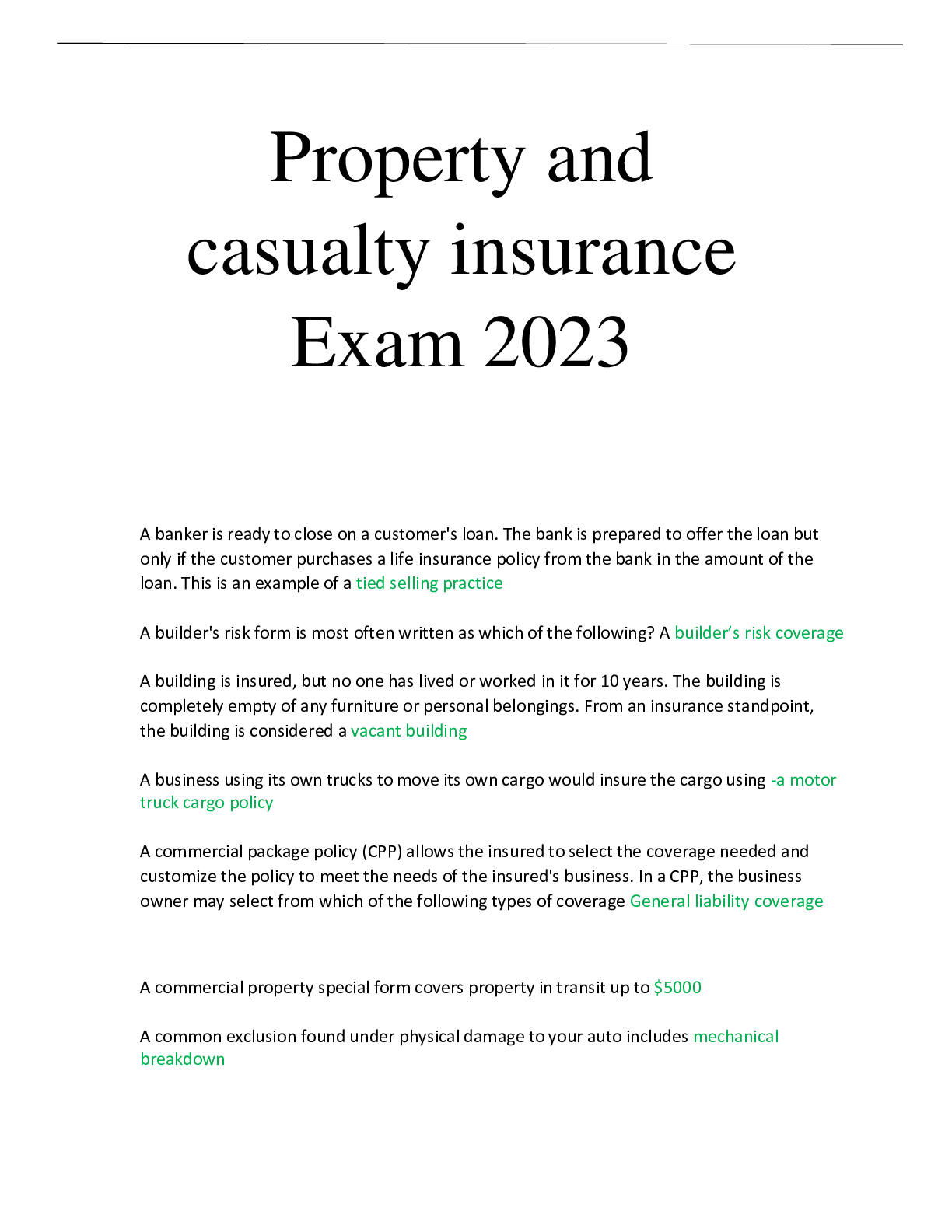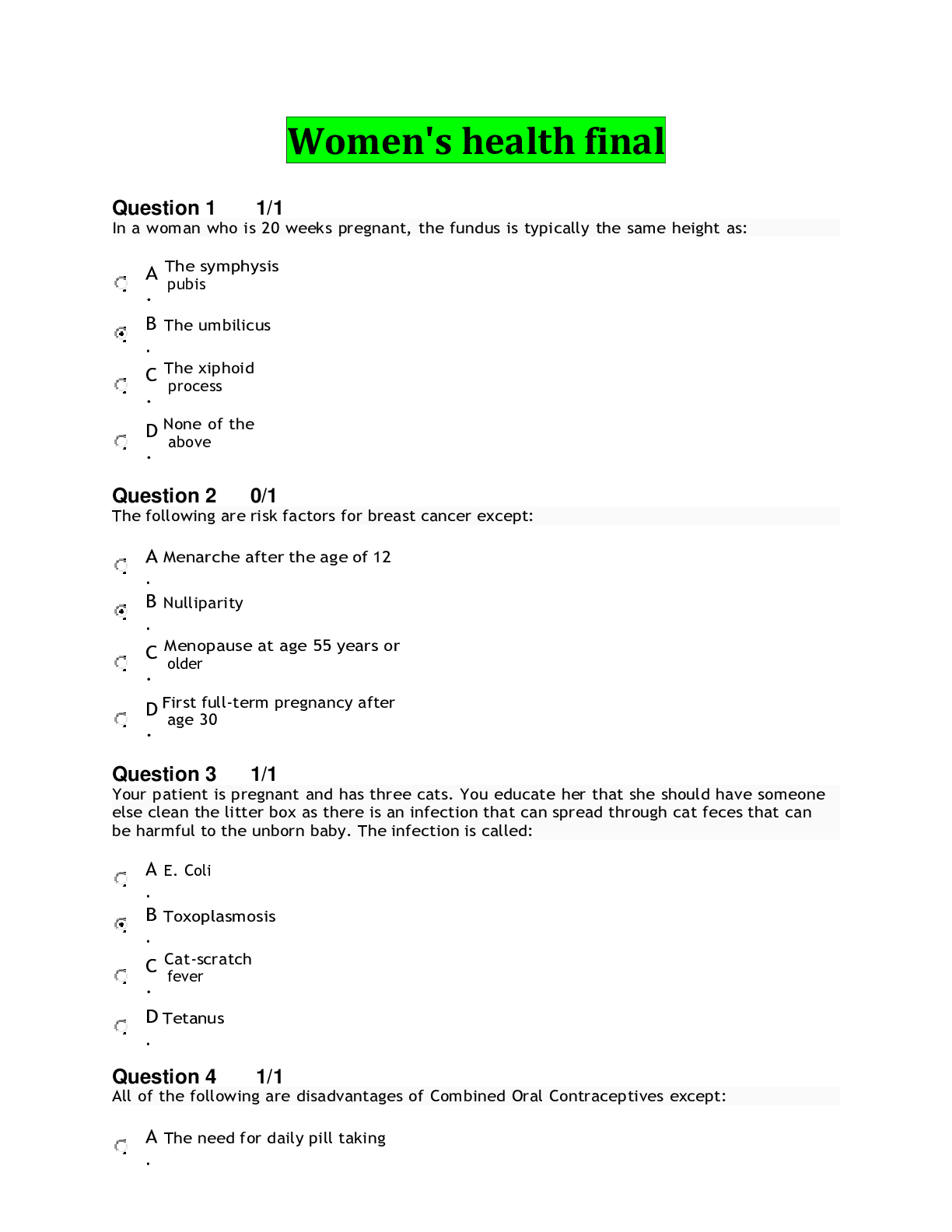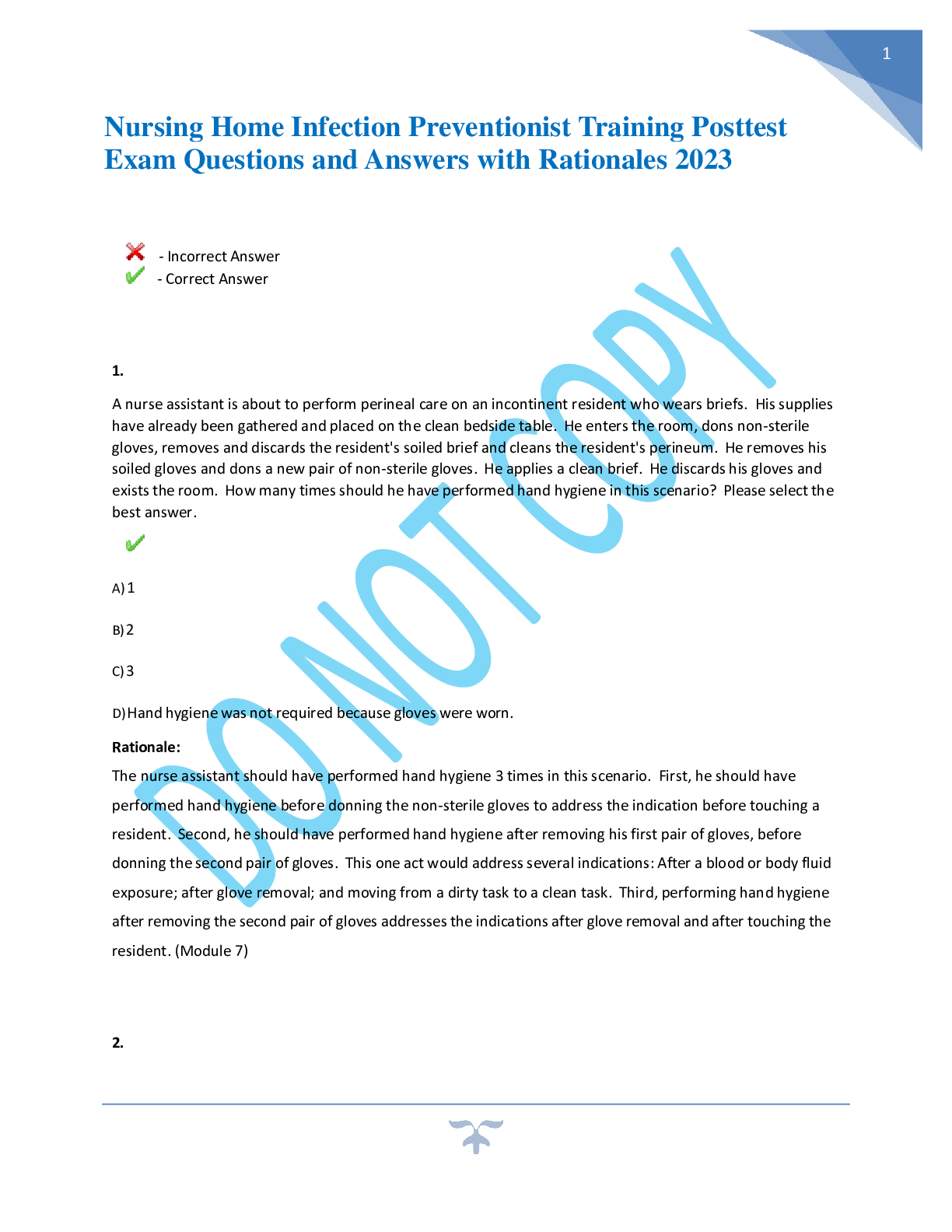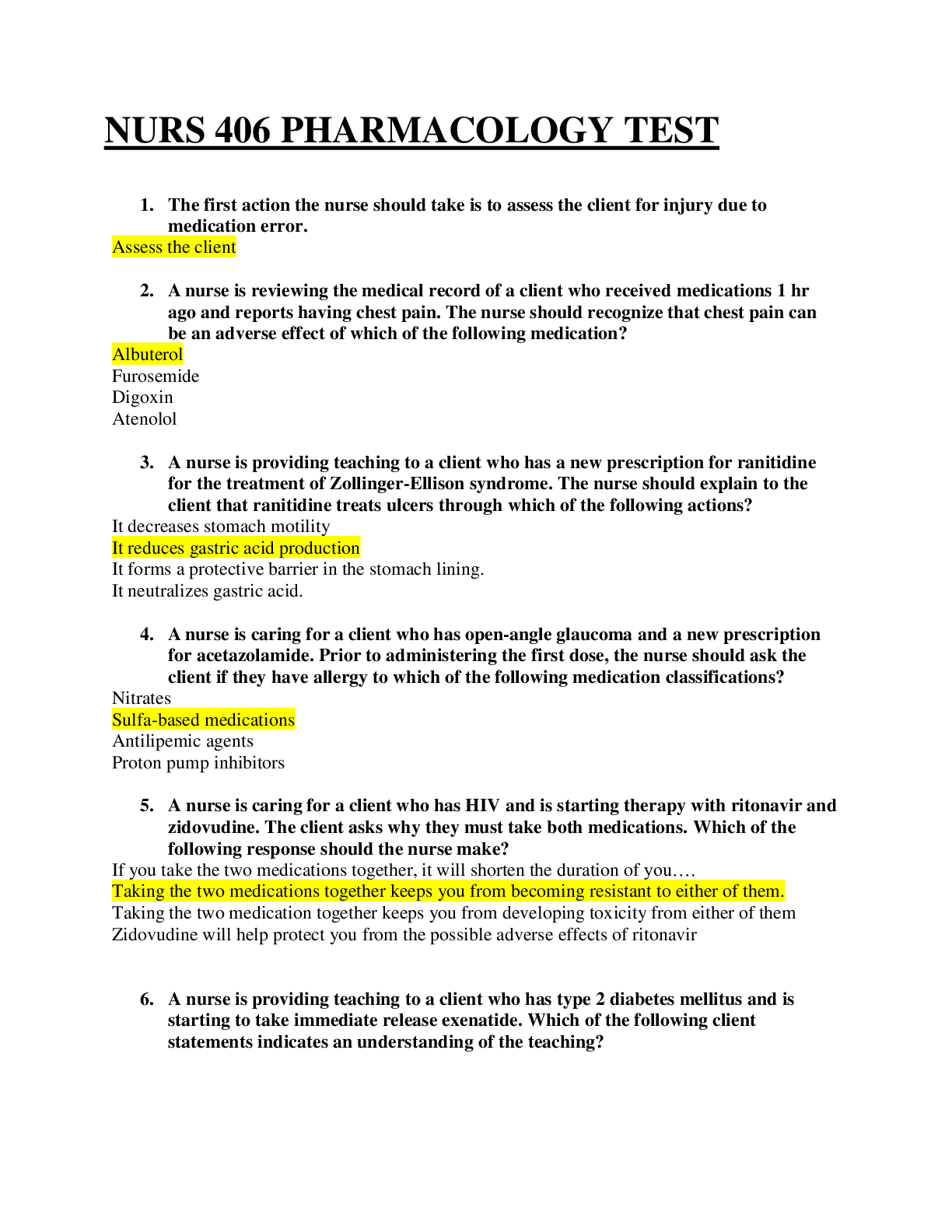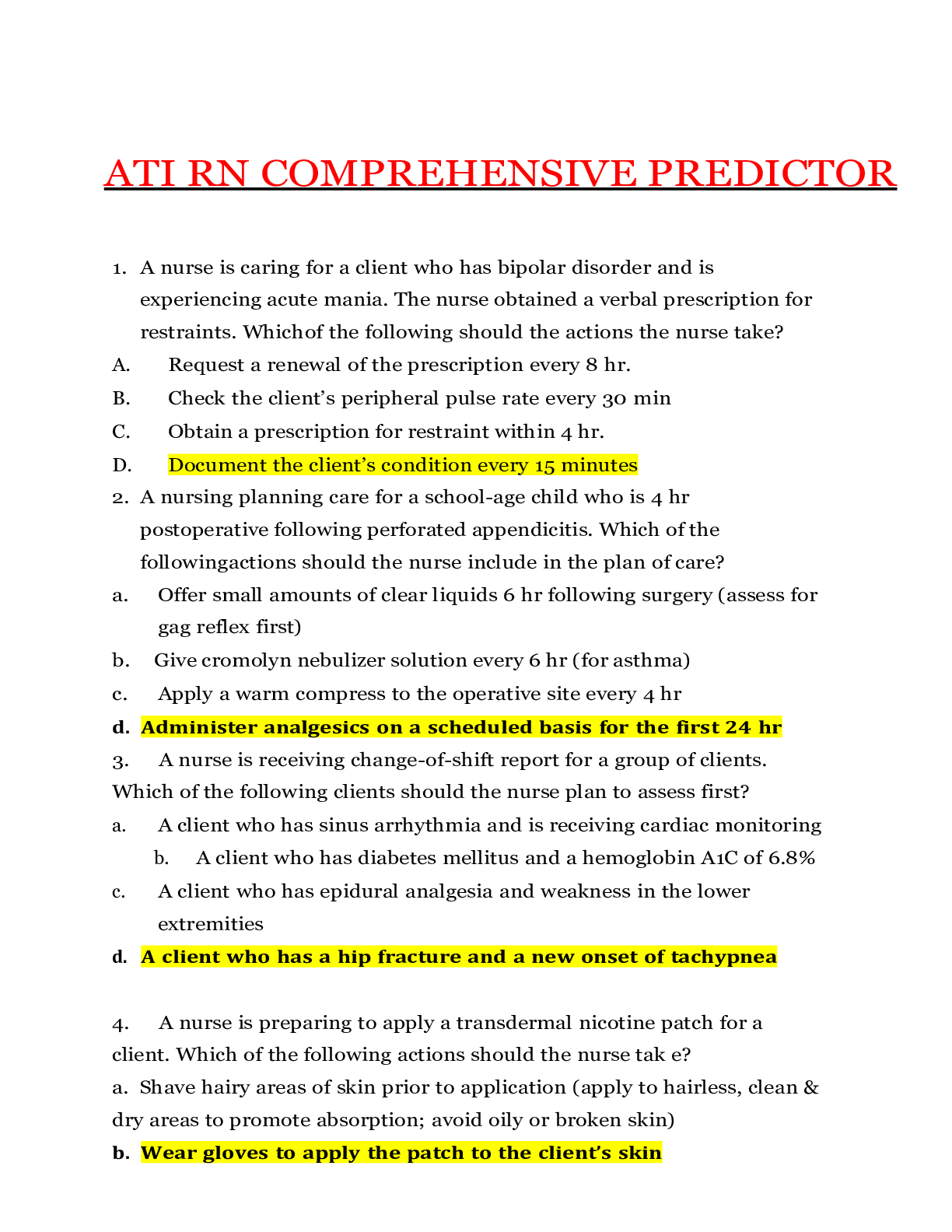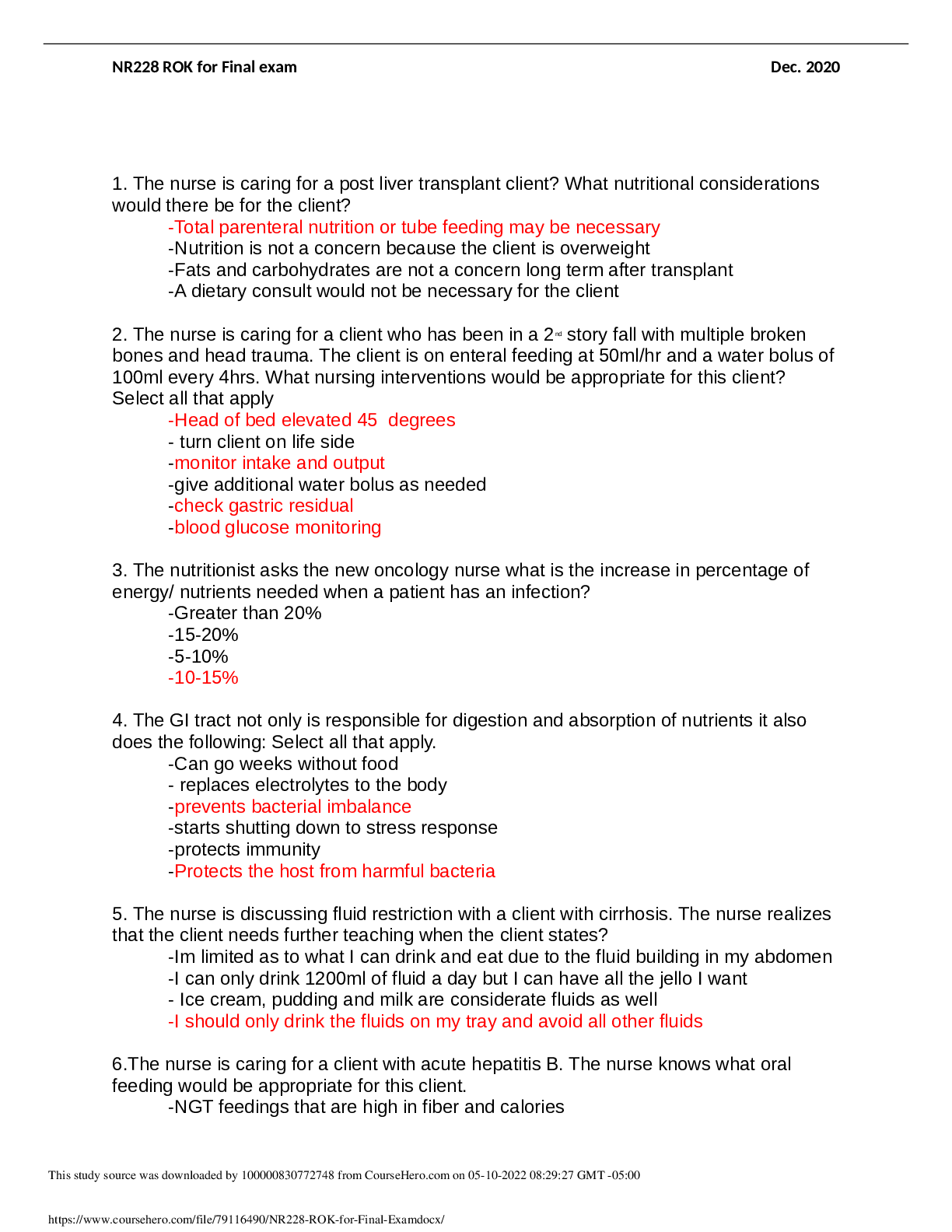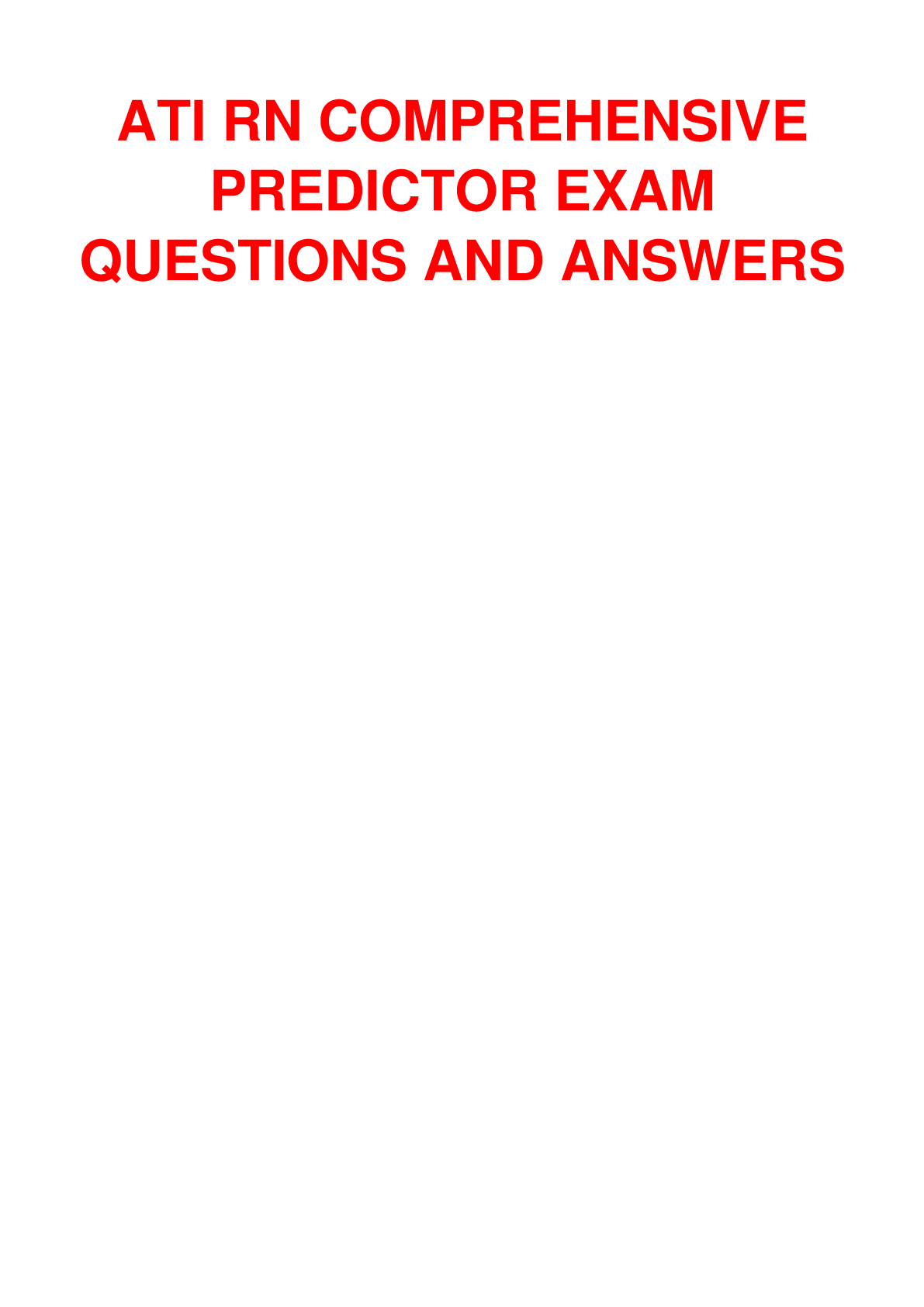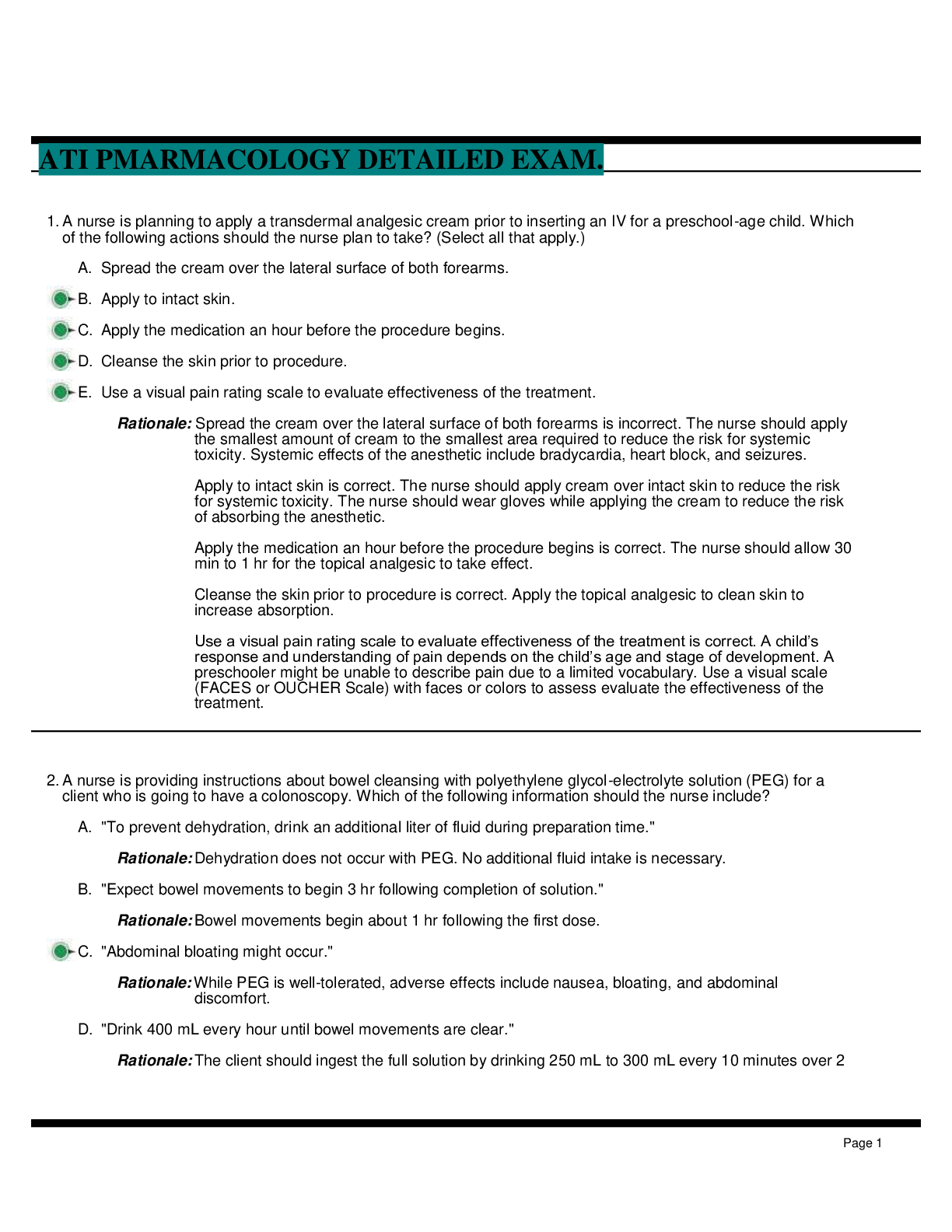Biology Midterm Exam Questions and Answers
Document Content and Description Below
Biology - ANSWER Scientific study of life Organism - ANSWER a unit of life (multi-cellular or uni-cellular) Growth & development - ANSWER During fertilization, a single fertilized egg divides ag... ain and again. As the cells divide, they differentiate, which means they begin to look different from one another and to perform different functions. Reproduction - ANSWER All organisms produce new similar organisms. Most plants and animals engage in sexual reproduction. In sexual reproduction, cells from 2 parents unite to form the 1st cell of a new organism. Other organisms reproduce through asexual reproduction, in which a single organism produces offspring identical to itself. Species - ANSWER a group of similar organisms that can breed and produce fertile offspring. Stimulus response - ANSWER Organisms detect and respond to stimuli from their environment. A stimulus is a signal to which an organism responds. Homeostasis - ANSWER All organisms need to keep their internal environment relatively stable, even when external conditions change dramatically. Adaptation - ANSWER heritable characteristic that increases an organism's ability to survive and reproduce in an environment. 8 characteristics of life - ANSWER • Made up of cells • Based on a universal genetic code • Obtain and use materials and energy • Grow and develop • Reproduce • Respond to environment • Maintain a stable internal environment • Change over time science - ANSWER Organized way of gathering and analyzing evidence about the natural world. Science - ANSWER Organized way of gathering and analyzing evidence about the natural world. Theory - ANSWER well-tested explanation that unifies a broad range of observations and hypotheses, and enables scientists to make accurate predictions about new situations. Peer review - ANSWER scientific papers are reviewed by anonymous, independent experts. Metric system - ANSWER Most scientists use the metric system when collecting data and performing experiments. Scientific method - ANSWER A way to observe, ask questions, make inferences, form hypothesis, conduct experiments, and collect data, and draw conclusions. 1. Observation - ANSWER act of noticing and describing events or processes in a careful, orderly way. 2. Inference and Hypothesis - ANSWER Inference- logical interpretation base on what scientists already know(can lead to hypothesis) hypothesis- scientific explanation for a set of observations that can be tested in ways that support it or reject it 3. Designing Controlled experiments - ANSWER Testing a scientific hypothesis often involves designing an experiment that keeps track of various factors that can change, or variables. When ever possible, a hypothesis should be tested by an experiment in which only one variable is changed. All of the other variables should be kept unchanged, or controlled. 4. Collecting and analyzing data - ANSWER Scientists make detailed records of experimental observations, gathering information called data. 5. Drawing Conclusions - ANSWER Scientists use experimental data as evidence to support, refute, or revise the hypothesis being testes, and to draw a valid conclusion. Observation - ANSWER process of noticing and describing events or processes in a careful, orderly way. Inference - ANSWER a logical interpretation based on prior knowledge and experience. Hypothesis - ANSWER possible explanation for a set of observations or possible answer to a scientific question. Experiment - ANSWER Testing a scientific hypothesis often involves designing an experiment that keeps track of various factors that can change, or variables. Control Group - ANSWER group in an experiment that is exposed to the same conditions as the experiment group except for one independent variable. Experimental Group - ANSWER the group in an experiment that is exposed to the independent variable. Independent Variable - ANSWER factor in a controlled experiment that is deliberately changed; also called manipulated variable. Dependent Variable - ANSWER variable that is observed and that changes in response to the independent variable; also called the responding variable. Constant - ANSWER something that's the same the whole experiment. Factors that are kept the same. Data - ANSWER evidence; information gathered from observation. Principles of Ecology. - ANSWER living + living +non-living Cycling of matter Flow of energy organism relationships (Biotic(cells)(Abiotic (rocks, water, temperature) Energy is needed to cycle ... through living and non living systems. - ANSWER materials Biotic - ANSWER living Abiotic - ANSWER non-living Abiotic things ... biotic things - ANSWER affect Mutualism - ANSWER both benefit. ex. Clownfish live among the sea anemone's tentacles and protect the sea anemone by chasing away would-be attackers. The sea anemone, in turn, protects the clownfish from their predators. Commensalism - ANSWER 1 benefit. The other doesn't benefit. ex. Barnacles attached to the skin of this grey whale are feeding on food in the water that passes over them as the whale swims. Barnacles don't affect the way positively or negatively. Parasitism - ANSWER 1 benefits. 1 gets hurt. ex. This brown leech is feeding on the blood of its host, a human. The brown leech benefits while the host is harmed. Competition - ANSWER Trying to get the same resources. Levels of organization - ANSWER organism population biological community ecosystem biome biosphere population - ANSWER group of individuals of the same species that live in t [Show More]
Last updated: 1 year ago
Preview 1 out of 13 pages
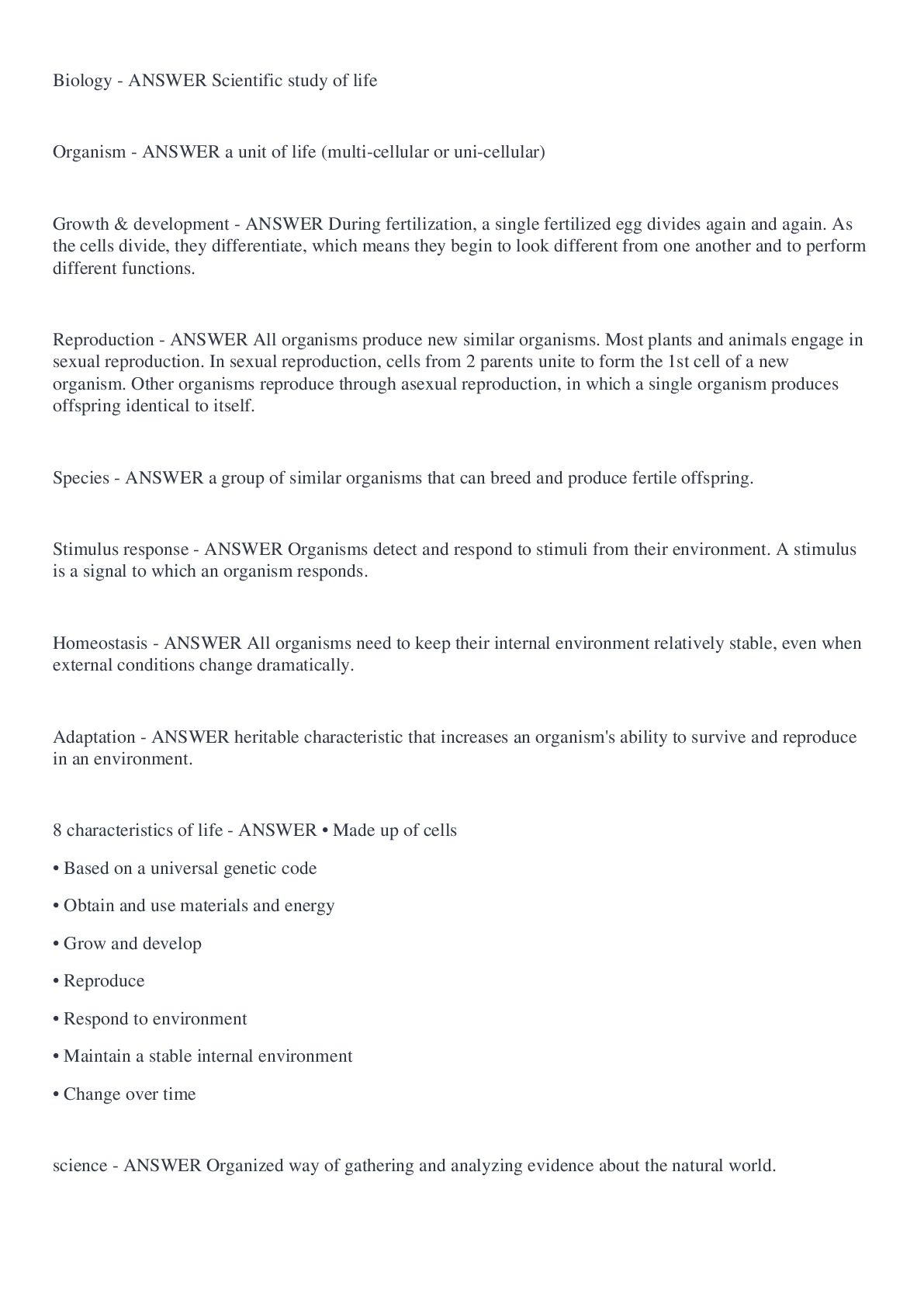
Reviews( 0 )
Document information
Connected school, study & course
About the document
Uploaded On
Jul 29, 2022
Number of pages
13
Written in
Additional information
This document has been written for:
Uploaded
Jul 29, 2022
Downloads
0
Views
37

